










 Bridget McCrea
Bridget McCrea
We understand that you, our members, have had your lives disrupted by the COVID -19 pandemic, and we hope that you are safe and healthy. As we all look forward to a post-pandemic future, we hope this issue of Insight provides you with thoughtful information on aiding our economic recovery and addressing the important issues impacting the accounting and finance profession
ILLINOIS CPA SOCIET Y 550 W Jackson Boulevard, Suite 900, Chicago, IL 60661
www icpas org
Publisher/President & CEO
Todd Shapiro
Editor Derrick Lilly
Assistant Editor
Hilary Collins
Creative Director
Gene Levitan
Copy Editors
Nancy Clarke | Mari Watts | Jennifer Schultz, CPA
Photography
Derrick Lilly | iStock
Circulation
John McQuillan
Chairperson
Dorri C McWhorter, CPA, CGMA, CITP | YWCA Metropolitan Chicago
Vice Chairperson
Thomas B Murtagh, CPA, JD | BKD CPAs & Advisors
Secretar y
Mary K Fuller, CPA | Shepard Schwartz & Harris LLP
Treasurer
Jonathan W Hauser, CPA | KPMG LLP
Immediate Past Chairperson
Geoffrey J Harlow, CPA | Wipfli LLP
John C Bird, CPA | RSM US LLP
Brian J Blaha, CPA | Wipfli LLP
Jennifer L Cavanaugh, CPA | Grant Thornton LLP
Stephen R Ferrara, CPA | BDO USA LLP
Jennifer L Goettler, CPA, CFE | Heinold Banwart Ltd
Scott E Hurwitz, CPA | Deloitte LLP

Joshua D Lance, CPA, CGMA | Lance CPA Group
Enrique Lopez, CPA | Lopez and Company CPAs Ltd
Elizabeth Pittelkow Kittner, CPA, CGMA, CITP, DTM | International Legal Technology Association
Deborah K Rood, CPA | CNA Insurance
Seun Salami, CPA | Teachers Insurance and Annuity Association of America
Stella Marie Santos, CPA | Adelfia LLC
Brian B Stanko, Ph D , CPA | Loyola University
Mark W Wolfgram, CPA | Bel Brands USA Inc
Back issues may be available Articles may be reproduced with permission Please send requests to lillyd@icpas org
Want to reach 23,000+ accounting and finance professionals? Advertising in Insight and with the Illinois CPA Society gives you access to Illinois’ largest financial community Contact Mike Walker at mike@rwwcompany com
Insight is the magazine of the Illinois CPA Society Statements or articles of opinion appearing in Insight are not necessarily the views of the Illinois CPA Society The materials and information contained within Insight are offered as information only and not as practice, financial, accounting, legal or other professional advice Readers are strongly encouraged to consult with an appropriate professional advisor before acting on the information contained in this publication It is Insight ’ s policy not to knowingly accept advertising that discriminates on the basis of race, religion, sex, age or origin The Illinois CPA Society reserves the right to reject paid advertising that does not meet Insight ’ s qualifications or that may detract from its professional and ethical standards The Illinois CPA Society does not necessarily endorse the non-Society resources, services or products that may appear or be referenced within Insight, and makes no representation or warranties about the products or services they may provide or their accuracy or claims The Illinois CPA Society does not guarantee delivery dates for Insight The Society disclaims all warranties, express or implied, and assumes no responsibility whatsoever for damages incurred as a result of delays in delivering Insight Insight (ISSN1053-8542) is published four times a year, in spring, summer, fall, and winter, by the Illinois CPA Society, 550 W Jackson, Suite 900, Chicago, IL 60661, USA, 312 993 0407
Copyright © 2020 No part of the contents may be reproduced by any means without the written consent of Insight Send requests to the address above Periodicals postage paid at Chicago, IL and at additional mailing offices POSTMASTER: Send address changes to: Insight, Illinois CPA Society, 550 W Jackson, Suite 900, Chicago, IL 60661, USA
We’ve got
Take advantage of all the ways your ICPAS membership can help you to keep moving forward.
WhenI penned my spring column in late February (published in April), I had no idea what was around the corner I was aware of COVID-19 but thought it could be controlled or limited in its spread Then, while visiting the Maryland Association of CPAs in early March, I was stunned by the news that Harvard University was telling its students not to come back from spring break Little did I know that much of the country would shut down in the days and weeks ahead
What followed, as they say, is history The COVID-19 pandemic unleashed massive upheaval in our lives and our profession Tax deadlines were extended or altered, the government approved historic stimulus programs, accounting was deemed an essential business, and we learned the term “social distancing ” Offices of all types, including many accounting firms, pivoted to remote work environments overnight, and we learned just how dependent we are on technology and the cloud that is if you had been smart or lucky enough to have already moved in that direction
What this became for our profession was, truly, a chance to shine Businesses of all types were turning to their trusted advisors their CPAs in search of advice and, in some cases, strategic insight for how to sustain, survive, and thrive again CPAs, who were facing their own challenges with remote workers, technology issues, and changing rules and regulations worked long hours to provide vital assistance to their clients and communities in a time of need
I can’t thank you enough for all you did But what about all that’s left to do? Now is a great time to step back and, as lifelong learners, figure out what was learned from all of this and how it can help move us forward

I believe that one of the key lessons learned was the critical role that technology plays in everything we do Adoption of cloud-based systems stood out as a game changer, as working remotely came

more easily for early adopters However, the degree to which clients were comfortable with technology also had a huge impact on the success firms had in shifting to a remote work environment For the benefits of a firm’s automation and technology to be fully realized, it needs to be end-to-end from the firm to the client A lesson for the future as we embrace new technologies, we must ensure our clients are moving forward with us
Another key lesson learned is that clients truly value strategic insight CPAs became the go-to people for helping clients and companies to project cash flows, prepare Paycheck Protection Program applications, and navigate other government assistance programs Many firms also proactively reached out to their clients to advise them on other alternatives to help their businesses survive This crisis became a significant opportunity to go beyond a compliance service relationship (tax and audit) and build deeper relationships that demonstrate how CPAs are strategic business advisors
So, where do we go from here? The pandemic will end, and eventually business will return to normal Soon enough, we’ll be back to debating the dramatic impacts that artificial intelligence and robotic process automation will have on the profession, particularly with regard to traditional compliance services The profession will be best served if we build upon the value we added by providing strategic insights when businesses needed them most Long term, CPAs will ensure their relevance by moving beyond being the “most trusted advisor” to embracing their roles as clients’ “most trusted and strategic advisor ”
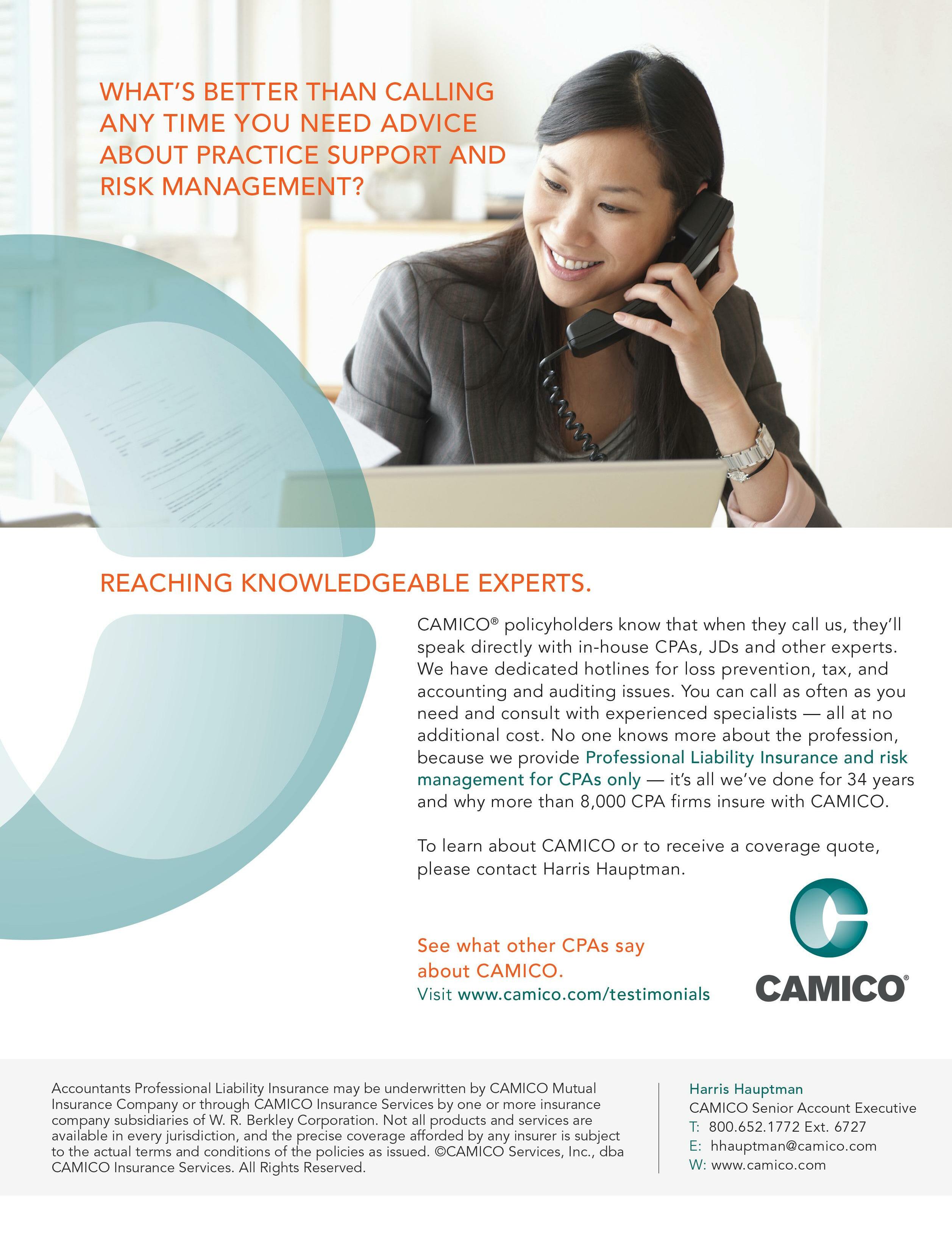

Whenthe pandemic first hit, our state and federal governments focused on responding to the public health implications, taking such major steps as transforming Chicago’s McCormick Place Convention Center into an overflow hospital and executing a statewide stay-at-home order But as the infection curve flattens and public health operations stabilize, the focus has pivoted to the magnitude of the economic crisis While many of us have seen firsthand the enormity of the COVID-19 crisis, we are just beginning to glimpse the real economic challenges that lie ahead
In my career, I have responded to natural disasters as an Air Force judge advocate and as an assistant to former Gov Jim Edgar, and I have learned that imperfect circumstances result in imperfect solutions Moving forward as trusted and strategic advisors to individuals and businesses, we must understand the State of Illinois is in a very imperfect situation, which will undoubtedly lead to solutions that are themselves far from perfect By embracing that broader perspective, we can best serve and advise our clients in these difficult times and those that lie ahead
Even before COVID-19 hit here, the major bond ratings firms were warning that Illinois was illprepared to withstand an economic downturn Fitch, Moody’s, and Standard & Poor’s all stated that Illinois’ public finances had not rebounded from the 2008 economic recession or resolved its public pension debt In mid-March, Gov J B Pritzker and his budget office estimated that the state was looking at a combined $7 4 billion budget gap for fiscal years 2020 and 2021
Prior to the COVID-19 outbreak, Pritzker’s “Fair Tax” amendment, moving Illinois from a flat tax rate to a graduated rate, was viewed as a philosophical panacea to cure Illinois’ economic woes Now that COVID-19 has driven the loss of significant tax revenues, an economic downturn, and investment losses by public pension funds, Illinois’ economic environment is even more desperate It’s clear now that additional tax revenue and any federal assistance money the state may receive will not do much to fill the budget gap
While it can be argued that these economic circumstances lay the groundwork for the passage of the “Fair Tax” amendment this November, it will not be enough The need to close the structural budget deficit, address our public pension system’s shortcomings, and fix the high rate of property taxes necessitates the need for the General Assembly to look for additional revenues
What does all of this mean for the CPA profession? It means potential risk to our practice areas Many think tanks and advocacy groups have proposed the need for Illinois to expand its tax base When the Illinois General Assembly begins looking for new revenue lines, they will likely revisit the idea of taxing professional services As recently as 2017, in the budget standoff between former Gov Bruce Rauner and the Illinois House and Senate, the Senate passed a bill that taxed a number of consumer services While that particular item did not pass the House then instead, increased income tax rates for individuals and corporations were signed into law a tax on services is likely to come up again now
As the state’s health crisis stabilizes, its economic crisis is only beginning.
LEGISLATIVE INSIGHTS FROM MARTY GREEN, ESQ , ICPAS VP OF GOVERNMENT RELATIONS @GreenMarty
The services considered may be consumer services or professional services Last summer, Chicago Mayor Lori Lightfoot talked about placing a value-added tax on large law firms and international accounting firms In response, we established a coalition of stakeholders and pursued several strategic lines of effort to discourage any legislation to authorize a municipal professional services tax We were successful no such legislation was introduced If such a proposal presents itself again, our advocacy processes are in place to represent the CPA profession
My message is this: The extent of the damage that COVID-19 has inflicted on Illinois’ economy and the nation’s is yet unknown Restarting the economy with the existing budget gap will present enormous challenges for all of us The “Fair Tax” amendment is only the beginning of a long struggle to right the ship Let us hope that the governor and the General Assembly will use this crisis to address the structural changes needed in state government with the delivery of services, public pension funding, and longterm budgeting processes
COVID-19 has changed our lives, but during the worst of times, we see the best in people We have learned to work remotely, using technology to do business and stay in touch Healthcare professionals, at great risk to themselves, have worked tirelessly to provide care and compassion Communities and neighbors have reached out to those in need, working with food banks, assisting their neighbors, and supporting local businesses We are a resilient people By working together, our state and country will emerge from the economic crisis CPAs will play an important role, serving as essential strategic advisors to individuals, businesses, and the government, both in weathering COVID-19 and achieving longterm economic health
But overcoming the current crisis and the long, tough road ahead depends on us continuing to work together and show our best selves It reminds me of these words from General Dwight Eisenhower, issued upon the Allied victory in 1945: “[L]et us remind ourselves that our common problems of the immediate and distant future can best be solved in the same conceptions of cooperation and devotion to the cause ” Eisenhower’s call for cooperation in the wake of worldwide struggle is a reminder that together we can overcome the doubleheaded crisis before us
Author’s Note: This column includes my personal observations of the evolution of the legislative environment and are not necessarily the views of the Illinois CPA Society
S trategic programs focused on real-world solutions
• ICPAS VIRTUAL SUMMIT20: Corporate Finance Track
August 25-26, 2020
• Financial Repor ting Symposium
September 24, 2020
• Controller s Conference
March 202 1
The go-to resource for your entire corporate finance team, all for one low price.
Quar terly programs to expand your knowledge base, share best practices and network
Bi-monthly e-publication delivered to your email box featuring insightful corporate finance news and trends
Connect with fellow corporate finance professionals to ask questions, discuss issues and receive input
Tools to help you climb the corporate ladder including job postings, aler ts, resume posting and career coaching
SUMMIT20 keynote speaker Donny Shimamoto shares his tech outlook for 2020 and beyond.
BY HILARY COLLINSchanges so rapidly that it often feels impossible to keep up, but Donny Shimamoto, CPA, CITP, CGMA, says the best way to keep up is to look for patterns from the past Shimamoto is the founder and managing director of IntrapriseTechKnowlogies LLC, where he helps small and midsize organizations use technology to grow, achieve strategic goals, and manage risks Here are his top six predictions for how technology will evolve in the next year, how the COVID-19 pandemic will affect technological decision-making, and what innovations will be most impactful for CPAs moving forward
1. The rise of remote work
Forced into utilizing a remote workforce during the pandemic, many workplaces will have a hard time coming up with reasons for why employees can’t work from home once things get back to normal “I think that one of the benefits that I've seen from the coronavirus crisis is the accelerated adoption of remote work,” Shimamoto says “One of the biggest hurdles that the profession has had to remote work is the question of whether people can be equally productive working remotely, and I’m hoping that after this the answer will be yes ”
2. A boom of budgeting and forecasting software
Another surge that will be born from coronavirus: increased use of financial planning and analysis technology like budgeting and forecasting software “This will be a big thing as people try to make tough decisions in volatile environments When do we reopen? How much money do we need from PPP or EIDL programs? How would we use that money? Can we pay it back? When can we pay it back? What happens if we have to close again? Budgeting and forecasting tools can really help with these kinds of questions,” Shimamoto says
3 Broader business continuity planning
While business continuity planning is not directly a technological issue, many of the tools that can help businesses operate seamlessly are technological And in the wake of the coronavirus pandemic, leaders will return to business continuity planning with a new perspective “In the past, business continuity focused on natural disasters and disaster recovery, ” Shimamoto explains “Now, continuity planning will consider various other situations that could disrupt normal business activities It reminds me a little of the
anthrax scare in the early 2000s, where we had physical issues like opening mail or gaining entry to office buildings Now, again, you've lost access to your physical office How do you operate? What do you do? Those solutions are likely to be technological ”
In the coming year, accounting firms that haven’t already are likely to warm up to client portals, both to facilitate remote work for employees and to provide touch-free convenience for clients Organizations will also see increased use of collaboration software, like Slack or Microsoft Teams, where they can share files, have asynchronous conversations, and electronically manage workplans with employees and business partners “Having the ability to exchange information electronically, easily, and effectively from the comfort of your own home, or from the client's or business partner’s perspective from the comfort of their own home or their own office, will be a high priority,” Shimamoto notes
5.
Shimamoto says that, prior to the pandemic, a rise in process automation would have been at the top of his list of tech predictions While more pressing concerns have knocked it down a few notches, automation specifically robotic process automation (RPA) will offer a unique opportunity to businesses willing to explore its possibilities “As we look toward 2021, we’ll see automation come back into focus, and RPA will be the technology leading the way, ” Shimamoto explains
6.

Underlying every technological advance is the need for improved cybersecurity Organizations who are implementing new tech should address the accompanying cyber risks before, not after, they move forward “A lot of people will use cybersecurity as the excuse: ‘We can’t do that because it might lead to a data breach,’” Shimamoto notes “But if you plan ahead and address cybersecurity upfront, then you can come out much more secure than you were before ”
Want to hear more from Donny? Join us for his technology keynote at ICPAS SUMMIT20 Register now at www icpas org/summit

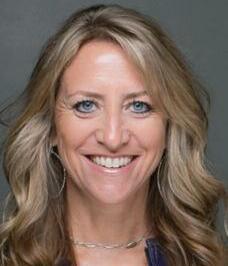

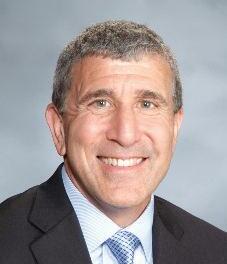

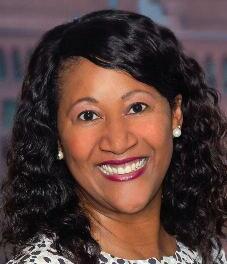
What other s have said about ICPAS’ vir tual education prog rams:
“I am ver y grateful for the simulcast The technology worked ver y well and I will do it again next year!”
“I have never done vir tual CPE before, but think ever yone did a great job in presenting in this format ”
“The electronic format worked and saved me 3-4 hours of travel time!”
“Greatly appreciated being able to attend via simulcast.”
(SEE DAY ONE AND T WO AT- A -GL ANCE FOR DETAILS)
• Accounting & Auditing
• Corporate S trategy/Human Capital
• Ethics/Government
• Tax
• Technology Solutions/Advisor y Ser vices
Vir tual visits and one-on-one video chat appointments with top-tier exhibitors, including Thomson Reuter s, Intuit, Smar t Vault, Paymerang, Rober t Half, Af finipay and many more.
• Vir tual Networking Oppor tunities • Scavenger Hunts
• Giveaways and Prize Raf fles • Flash Solution Sessions
• Q&A Chats
Session Recordings All Access Pass Attendees will receive access to recordings of ALL SUMMIT sessions so the learning can continue af ter the event ends.
(Recordings available for 60 days af ter SUMMIT20 ends No CPE provided with the post-event recordings )
To register or for more det ails, visit www.icpas.or g/summit.
G L A N C
r
D A Y O N E A
H o w T e c h n o l o g y H e l p s A c c o u n t a n t s M i t i g a t e P a n d e m i c R i s k s D o n n y S h m
# M e T o o a n d Y o u : P r e v e n t i n g a n d I n v e s t i g a t i n g S e x u a l a n d O t h e r H a r a s s m e n t C o d e : 1 2 3 C L E : . 7 5 S e x u a l H a r a s s m e n t P r e v e n t i o n T r a i n i n g : 1
T r a n s i t i o n i n g F i r m O w n e r s h i p C o d e : 1 2 4
F r o m C o m p l i a n c e t o C o n s u l t i n g C o d e : 1 2 5
P r a c t i c i n g P r o f e s s i o n a l S k e p t i c i s m C o d e : 1 1 8 E t h i c s : 1 C L E 7 5
e : 1 1 3 E t h i c s : 1 C L E : 7 5
B u i l d i n g a W i n n i n g F i n a n c e T e a m C o d e : 1 1 9
T h e F i n a n c e L e a d e r a n d S t r a t e g y : A r e Y o u P l a y i n g a B i g E n o u g h R o l e ? C o d e : 1 1 4

H o w t o B u i l d a H i g hP e r f o r m a n c e T e a m C o d e 1 0 9
B e a N e t w o r k i n g N i n j a !B o d y L a n g u a g e T i p s f o r M a k i n g t h e M o s t o f E v e r y E v e n t C o d e : 1 0 4
R P A a n d t h e C P A : A P r a c t i c a l A p p r o a c h t o I m p l e m e n t i n g R o b o t i c P r o c e s s A u t o m a t i o n C o d e : 1 1 0
G r o w i n g a n d S c a l i n g a n E n t r e p r e n e u r i a l C P A F i r m C o d e : 1 0 5
C o r p o r a t e S t r a t e g y /
H u m a n C a p i t a l
T e c h n o l o g y S o l u t i o n s / A d v i s o r y S e r v i c e s
o d e :
I n t e r n e t T a x F r e e d o m A c t : P r o t e c t o r F r o m t h e T a x m a n ? C
L e a s e s : P o s t A d o p t i o n C o n s i d e r a t i o n s C o d e : 2 2 2
Y e l l o w B o o k U p d a t e : I m p l e m e n t a t i o n S t r a t e g i e s
C o d e 2 2 3
Y e l l o w B o o k : 1
F r a u d R i s k M a n a g e m e n t a n d A n t iC o r r u p t i o n P r o g r a m s C o d e : 2 2 4
N u t s a n d B o l t s o f C r y p t o c u r r e n c y T a x a t i o n : D e a l i n g w i t h I R S N o t i c e s C o d e 2 2 5
C L E : 7 5 C F P : 1 E A : 1
S e c t i o n 1 9 9 A : W h a t W e ' v e L e a r n e d C o d e : 2 1 6
a t i o n s C o d e : 2 1 1 C L E : 7 5 C F P : 1 E A : 1
A c c o u n t i n g & A u d i t i n g f o r D i g i t a l A s s e t s C o d e : 2 1 7
E m p l o y e e B e n e f i t P l a n s : T h e N e w A u d i t R e p o r t C o d e : 2 1 2

G A T A T i p s a n d T a c t i c s C o d e : 2 1 8 Y e l l o w B o o k : 1
C l i e n t R e l a t i o n s h i p R e d F l a g s : S p o t t i n g T h e m E a r l y C o d e : 2 1 3 E t h i c s : 1 C L E 7 5
T u r n i n g B u d g e t i n g a n d P l a n n i n g I n t o a C o m p e t i t i v e A d v a n t a g e C o d e : 2 1 9
S e v e n I n s i d e r S e c r e t s o f G r e a t L e a d e r s W h o P r o d u c e E x t r a o r d i n a r y R e s u l t s
2 1 4
C o d e :
K e e p i t S i m p l e : D a t a S e c u r i t y a n d T h i r dP a r t y R i s k M a n a g e m e n t C o d e : 2 2 0
U n l o c k i n g t h e P o w e r o f D a t a A n a l y t i c s a n d I n t e l l i g e n t A u t o m a t i o n C o d e : 2 1 5
R e v e n u e R e c o g n i t i o n : W h a t ' s N e x t C o d e : 2 0 7
L e a s e A c c o u n t i n g S t a n d a r d s : I m p a c t s a n d I m p l e m e n t a t i o n C o d e : 2 0 2
C o r p o r a t e G o v e r n a n c e : W h e n M i s t a k e s A r e M a d e C o d e : 2 0 8 C L E : 7 5
A c h i e v i n g P a r i t y : W o m e n i n t h e W o r k f o r c e C o d e : 2 0 3
B e s t P r a c t i c e s i n F i n a n c i a l P l a n n i n g a n d A n a l y s i s a n d P e r f o r m a n c e M a n a g e m e n t
S e l l i n g t h e C l o s e l y H e l d B u s i n e s s : O p t i m i z i n g V a l u e a n d M a r k e t T r e n d s
2 0 9 C F P : 1
C o d e :
P e r s o n a l i z i n g F i r m T e c h n o l o g y t o L i v e a B e t t e r L i f e C o d e : 2 1 0
2 0 4
C o d e :
B u s i n e s s F u n d a m e n t a l s : S t a y i n g O u t o f T r o u b l e W i t h t h e I R S C o d e : 2 0 5
C L E : 7 5 C F P : 1 E A : 1
E t h i c s / G o v e r n m e n t
C o r p o r a t e S t r a t e g y / H u m a n C a p i t a l
T e c h n o l o g y
S o l u t i o n s / A d v i s o r y S e r v i c e s
In the midst of reckoning with COVID -19, strategic thinkers are taking notes for the next crisis
BY NATALIE ROONEYn the early days of 2020, RSM US LLP’s leadership team was carefully monitoring the COVID-19 pandemic The firm quickly set up an incident response team to share information A second team, representing every facet of the firm’s business, was formed to gather input and provide updates to firm leadership and the board

On March 17, the firm went 100 percent virtual
In late April, yet another team was formed, dedicated to reopening offices “We wanted a comprehensive approach to protect our employees and get them back into offices in a safe, productive environment,” says RSM Chief Operating Officer Bill Gorman
At Wipfli, the management team made the decision for its workforce to work from home over a weekend “We were able to get people working from home with essentially the snap of a finger,” says Brian Blaha, CPA, growth partner and industry leader, and a member of the Illinois CPA Society’s board of directors
Having strategic crisis plans in place and a solid technological footing were critical to both firms’ ability to move quickly Although the existing plans were designed for natural disasters, the general framework guided leaders as COVID-19 took shape “We scaled our plan across the organization and adapted as information became available,” Gorman says
Communication, both internal and external, proved critical as businesses went virtual Gorman describes getting into a “communication cadence” with partners and employees, and Blaha says his team relied on video and conference calls to help with clarity of work
At Wipfli, daily calls addressed the firm’s internal communications with employees and external communications with clients The goal was to drive current and prospective clients to the firm’s website, a
strategy that worked almost too well “Our website traffic went off the charts,” Blaha says “People were thirsty for regulatory and legislative information ”
Teams worked overnight to update the website each time Congress released new information The fast turnaround led to an unexpected outcome: new clients “If you get information out ahead of your competitors, prospective clients see you in a positive light and are eager to connect,” Blaha explains
When information about the CARES Act was released, Gorman says RSM made it a point to ensure “caring” was front and center in all client efforts: “At RSM, we speak openly of our values, culture, and behaviors, and every decision we make is grounded in those values We asked, how can we care for our clients? What do they need?”
At first, clients needed guidance to navigate the regulations flowing from Congress RSM modified and enhanced its technology platforms and then launched a COVID-19 resource center addressing five critical issues: federal programs; liquidity; supply chain; workforce; and security, privacy, and technology
“We put our shoulder behind making sure the resources were there so we could help care for our clients and solve their problems,” Gorman says “It wasn’t about getting a sale or delivering a product It was about helping clients get through this pandemic ”
But these firms soon discovered there was a lot of opportunity beyond the regulatory and legislative issues
Clients who were also suddenly shifting to remote work needed technological help even more than they needed regulatory advice “The dynamic of how we were talking to our clients changed overnight,” Gorman says “Now, I don’t think we’ll ever go back to where we were Where that pendulum ends up will be an incredible journey ”
The next natural step became helping clients rethink their strategic plans and imagine a different future: What could their businesses look like in a post-pandemic world?
“A crisis highlights deficiencies,” Blaha says “Many clients are taking the time to think strategically and address gaps and opportunities that have come to light After this, our technology team will be even more critical in helping clients remain relevant in a digital world Changes were coming anyway, but COVID-19 accelerated the time frame ”
Gorman adds many companies have realized how quickly they can actually adapt: “There are clients who are developing new longterm objectives and adjusting their business models to be in a position of strength as we come through this ”
Blaha says technological investments over the years were key to the firm’s quick transition to a work-at-home environment “As painful as it might be, invest in your technology,” he advises “You need to prepare as if this isn’t the last time this will happen The technology will pay off, not just in how work will be done, but also in how you communicate with clients ”
In a post-pandemic world, the shift to advisory and consulting services from tax work is even more critical “Clients are moving to do-it-yourself tax platforms,” Blaha says “If tax prep is a chunk of your business, it will impact your revenue stream Think through how you’ll diversify There are opportunities to come out stronger
Those who adopt a mindset of continuous improvement will weather this crisis, as well as future crises, better than others ”
Wipfli saw sales numbers drop a week before Illinois’ shelter-inplace executive order went into effect “But we jumped on it right away because just like production, we needed to be into service extensions and new clients,” Blaha says “New clients told us their existing providers hadn’t reached out, and we had proactively contacted them It shortened our sales cycle, which was a learning moment for us Look holistically at all aspects of your go-to market strategies Don’t just be in client delivery mode in times like this Focus not just on production but also on building your pipeline ”
Gorman suggests taking time to evaluate and understand your position in this new normal Does the post-pandemic environment change your focus on an industry or service element? Is there an investment you need to make to be faster at those services? How do you use that investment to help clients? How do you turn what you ’ ve learned into a position of strength? Who stepped up as leaders so we can position ourselves for the future? As an advisor, how do you differentiate yourself by increasing the depth of value to clients?
“We’ve been in crisis mode,” Gorman says “Now take the opportunity that comes from what we learned about ourselves to reflect Regardless of firm size, CPAs are so important for the integrity and objectivity their advice brings This is the time to really position ourselves to be helpful and valuable to our clients ”

y now, your traditional busy season should already be in your rearview mirror, having wound down shortly after April 15 In years past, you would have already pored over the numbers, doublechecked the calculations, and filed the necessary tax forms on behalf of your company or clients You would be ready to take a breather, schedule some time off from work, and plan that summer vacation you ’ ve been anticipating
Not this year The global coronavirus pandemic threw a wrench in this scenario, taking a heavy toll on human life and day-to-day activities, and extending the tax season to July 15 and as of this writing, possibly further This likely left you, along with your fellow CPAs across the country, to balance several unforeseen challenges at once: managing the “ new ” busy season, helping clients/employers navigate unprecedented financial scenarios, ensuring everyone at home is safe, and maintaining personal emotional wellbeing
Any one of these tasks is arguably monumental, but when they began compounding upon one another during the spring and early summer, it became easy to see how any CPA could be left feeling overwhelmed and depleted of both physical and mental resources
“This is a really stressful, anxiety-provoking, and dehumanizing time for all of us, but particularly for those in professions that are tension-
evoking and have time pressures associated with them,” says Jessica Lippman, Ph D , a clinical psychologist
“Spring is a busy season to begin with for CPAs,” she explains “Most of them are generally dealing with the mounting pressure of having too much work squeezed into too little time not to mention looming tax deadlines ” The impact of this perfect storm of pressure can be downright overwhelming on a CPA’s psyche, Lippman says, and can take a toll on professionals’ mental health as they rush to meet deadlines, work long hours, eat on the run, and neglect their own needs
In March, for example, Lippman found herself working with one CPA whose anxiety levels were so high that he was forced to take a leave of absence from work “He was on overload,” she explains, “and questioning every action that he had taken and obsessing over what mistakes he had made or would make ”
To survive busy season and now COVID-19 with their mental health intact, there are simple and pragmatic steps CPAs should take
Managing busy season is stressful in a normal year, but it’s especially strenuous during a global pandemic With COVID-19 continuing to stir up emotions like stress, anxiety, fear, sadness, and

loneliness, the Mayo Clinic recommends getting enough sleep; participating in regular physical activity; eating healthy meals; avoiding tobacco, alcohol, and drugs; limiting screen time on computers and mobile devices; and taking time to relax and recharge as needed
While these pointers may sound simplistic, a sound night’s sleep or a healthy meal instead of takeout can make a big difference for mental health
Jay Scherer, president of Scherer Executive Advisors, says one of the best things CPAs can do to reduce their stress levels right now is to exercise regularly With social distancing rules impacting health club attendance, he advises professionals to set up mini home gyms: invest in a treadmill, bike, or elliptical machine, plus a few dumbbells and a yoga mat, and use them on a regular basis
“With the long hours that CPAs work, there’s a natural tendency to push their own health and wellbeing to the back burner,” Scherer says “This can be detrimental because the best defense against anxiety and stress is a good diet, good food, good sleep, and working out ”
During difficult periods, Scherer says it’s important to stay focused on the light at the end of the tunnel While this tunnel may seem particularly long and dark, maintaining a positive attitude as you progress through it is key to maintaining your mental health
Planning a fun activity for the future can help snap you out of a negative mindset Someone who typically takes an extended break at the end of the busy season, for instance, can start the early planning stages of taking this break in the fall
“CPAs like routine and enjoy having summers off, or at least some downtime during that period,” Scherer points out “The fact that the tax deadline falls in July interrupts these plans, not to mention the fact that there will be extensions filed and more work to do even when the actual deadline passes ”
To manage this uncertainty, Jasmine Young, CPA, founder and CEO of Atlanta-based Southern Tax Preparation & Services, says she’s creating daily to-do lists, sticking to a schedule, and allotting ample time daily for self-care “Setting a daily to-do list keeps me from being overwhelmed by the amount of work that has to be completed,” she says “I also prioritize tasks on the to-do lists to ensure client deadlines and expectations are met ”
Young says she’s also setting working hours and sticking to those hours to prevent burnout With more people working from home and feeling “always on, ” setting these parameters is more important “Staying within your working hours not only sets boundaries for clients and employers,” Young says, “but it also establishes boundaries for CPAs to ensure there is work-life balance ”
When it comes to self-care, Young says it can be as simple as setting aside time to take a walk outside for some fresh air, meditating, having lunch away from your desk, or simply doing nothing at all “This supports good work-life balance and allows CPAs time to wind down from the stress of the work required during this busy season, ” she says
Knowing that their team members are dealing with more than the usual number of personal challenges right now, managers and owners can also play a role in supporting mental health Scherer says opening lines of communication is a good first step, followed
by questions like: What challenges are you working through? How can I be helpful to you? What do you need from us?
“If a leader is oblivious to the individual needs of his or her team, those issues will be exposed pretty quickly when things rev back up, ” Scherer says He also cautions managers and owners to not push their teams too hard to make up for lost revenues due to COVID-19: “You’re not going to make it all up this year, so don’t even try especially if you ’ re billing hourly Cut yourself some slack and acknowledge that it’s just not going to be a great year; otherwise, you ’ re going to put too much pressure on your people ”
Pointing out the fallacy that partners don’t get ulcers they give them Lippman says now is also a good time to define the role and the scope of each CPA’s position “Firms hire very competitive personalities in a profession where quantitative overload and time pressures are the greatest stressors,” she says “This, in turn, leads to job tension and psychosomatic stress, the latter of which is both real and genuinely felt ”
Along with the tips already mentioned, Lippman says limiting exposure to news media and regularly connecting with others via phone, email, video chat, social media, and even snail mail can all help CPAs maintain their emotional health during a crisis
To managers, Lippman says simply acknowledging that team members are working very hard despite what’s going on in the world around them can go a long way in helping them feel appreciated and respected “Providing this level of support is incredibly important at all times,” Lippman says, “but it’s more critical now than ever ”
While these suggestions are relatively minor, small changes can make a big difference to mental resilience to the end of the busy season and beyond
 By Annie Mueller
By Annie Mueller

While the economic upheaval of a global pandemic affects everyone in different ways, there’s one feeling shared by all: uncertainty For CPAs who hope to offer clients strategic insights, responding to the pandemic is about more than helping them make decisions about what is happening now A wise response requires looking to the future sifting through scenarios, weighing potential outcomes, factoring in the unexpected, keeping up with continually changing guidelines, and assessing best options for each unique situation Oh, and trying to survive then recover
While the strategic advisory role of a CPA is often seen as a bonus to the core services they’re trusted to provide, in uncertain times, having a trustworthy partner to help make these tough decisions is an essential need These five CPAs and their firms grasped that need instinctively, and have found smart, safe ways to be there for their clients even when “there” often means anywhere but together

Curt Mastio doesn’t view what he’s doing as a special service; it’s part of being a good CPA “I’ve noticed during this time how important that advisory aspect of a real CPA is to my clients,” he says Mastio, who is also an adjunct lecturer at Northwestern University, started Founder’s CPA in 2015 to work primarily with startups He notes that entrepreneurs and new businesses frequently do not or cannot allocate much of their budget to accounting needs and often end up using an automated service “That seems okay until you ’ re in the middle of an uncertain situation like we all are now, ” Mastio says “There’s so much value in having a real, live CPA on your side helping you decide what to do next ”
That’s exactly what Mastio and his firm have been providing: help, advice, and expertise in unpredictable times “Most of our clients don’t have an accounting or financial background,” he explains “So even as federal and state resources, loans, and other options become available in response to the pandemic, it’s a lot to navigate the options and know what applies We’re doing our best to fill that knowledge gap ”
Filling the knowledge gap means stepping up without physically being there, so Mastio and his team at Founder’s CPA regularly send emails, host webinars, and meet virtually with clients “A lot of this is talking through various scenarios so our clients can make the most informed decisions possible even with so many unknowns and variables,” he says Additionally, his firm has created an online resource guide, which is regularly updated to help clients stay informed about developments impacting their unique businesses
Mastio encourages other CPAs to do the same in their own way “One complaint I’ve heard is that there’s not enough communication,” Mastio says “It goes a long way when you respond and make sure your clients know you care Let them know you ’ re here and you want to help ”


For many CPAs right now, being there for clients means facing difficult truths with them “We work primarily with service-based businesses,” says Tim Jipping “In these businesses, when you go from running at 100 percent to 5 percent overnight, it’s painful to watch ”
Clients now need much more than tax preparation or typical financial planning “There’s a bit of therapist, technical advisor, and friend in the mix of advisory services now, ” Jipping stresses “All of a sudden, we ’ re having tough conversations about whether to lay people off, what to tell employees, how to handle vendor relationships, and even how to close down a business And I say, ‘We’ll help you figure it out ’”
Jipping’s firm, though only two years old itself, has handled the disruption to business-as-usual with agility “Our firm was built for this We were already on Zoom and using automated systems We’re experiencing the benefit of being up-to-speed with current technology,” Jipping says Right now, he is focused on providing up-to-the-minute information for his clients “We work with clients across the country, and the situation is wildly different from state to state What helps is to keep clients as updated as possible on what we know We send emails less frequently but we ’ re very specific with them We say things like, ‘As of 10 a m today, this is what we know and what you should consider ’”
The dual challenge for clients is dealing with an economic shutdown and ensuing regulations while also looking ahead to what might come next “We’re trying to navigate what new regulations might be and how consumer expectations might change,” Jipping says “It’s a day-by-day thing ”
The most important piece in supporting clients now is to be there and be honest, Jipping emphasizes “This is an opportunity to build long-term, deep relationships It’s about being a partner,” he says “Be a fellow human who’s going through this same weird journey at the same time Be honest even when it’s tough to be optimistic Then help them think about the future and keep looking ahead ”
To survive long enough to look ahead, many businesses must do things differently now “Food and beverage and hospitality companies who aren’t trying new service methods are going to really struggle and may not make it through this,” says Joshua Lance “Our experience in virtual work is helping us help our clients reframe the situation and find ways to do things that are not traditional but still work ”
The Lance CPA Group is a fully remote and virtual CPA firm, which enables Lance and his team to provide exactly what their clients particularly those in the food and beverage and hospitality industries need during this time “Our craft brewery clients are figuring out how to change up their operations,” Lance explains “Most operated tap rooms and are now trying to pivot to offer to-go, deliveries, and other options they weren’t focused on previously ”
Making a big change in operations is no small feat, especially while adjusting to restrictions, keeping employees and suppliers safe, and handling inevitable cash flow challenges “Our goal is to be proactive in addressing the needs of our clients,” Lance stresses “Some of our brewery clients have found that the new methods we ’ ve suggested are good alternative revenue sources that may be worth holding on to, even when they can resume business as usual ”
To further support their clients, Lance and his team offer informational videos and daily virtual office hours They also set up an online community offering real-time help “With our craft brewery group, we set up a Slack group and invited all our brewery clients, plus others in the brew space and other breweries,” Lance says “We’ve been able to share information, and it’s rewarding to see people who are competitors in this space coming together to help each other ”
Helping clients during this time, Lance says, is about taking time to think creatively and solve problems with them “You don’t have to have all the answers, ” he explains “No one does Your clients need you to get in the trenches with them and let them know you ’ re in this together ”
Having a trusted partner in the trenches can make all the difference for clients struggling to keep their businesses alive “As a firm, we have done our best to reach out to as many clients we can by calling or emailing specific information to them,” says Jim Hogge, who is providing as much help as possible to all asking for guidance
“Since the start of the pandemic, my focus has shifted to staying on top of new legislation and the related guidance that is continually being issued,” Hogge explains “The main challenge is communicating with all the clients that can use the government assistance Some are closely monitoring legislation but others, unaware of their options, risk missing the help and information they need ”
COVID-19 has been devastating to many of Hogge’s clients and friends even clients with businesses deemed essential that can stay open are struggling to do so With schools closed, many employees have children at home, but no childcare options “The businesses that are still working are having difficulty finding staffing,” he explains “They are doing their best to just hang on ”
Hogge and his colleagues are focused on helping their clients understand their options and make wise decisions “I’m proud of the way the firm has pulled together to help our clients,” Hogge says “We understand that clients are scared about their livelihoods and are trying their best to keep their businesses going We’re here to do whatever we can to help as many clients as possible This is an overwhelming time, but we will all get through this together ”


Helping clients get through a pandemic requires a new kind of strategic approach “In the past, our consulting efforts have been aimed at helping clients grow, ” says Brad Werner “Now, with sustainability, strategic planning, and cash management as the top priorities, our consulting services have taken a different form ”
The same, but different: While there is “still demand for core services,” Werner says, “there’s a hunger for immediate strategic business advice CPAs who are ahead of the game in communicating current trends and proactive strategies are going to see opportunities emerge If you are helping companies and individuals sustain and thrive through these trying times, that’s an opportunity to build trust you cannot buy ”
Clients facing business challenges and complex situations is, of course, nothing new What is new are the amount and type of challenges “Clients are in triage mode to compensate for the shroud of uncertainty facing their businesses in the near-term,” Werner says He helps clients focus on four key strategic areas: enabling productive remote work environments, managing and enhancing cash flow, minimizing losses until normal operations can resume, and understanding how to best apply provisions from the CARES Act and other emerging federal, state, and local assistance programs To help clients navigate these areas, Wipfli created an online COVID-19 resource center “I’m actively consuming as much content around those topics as I can, ” Werner says “All it takes is one good idea that you can share with a client to make all the difference ”
Even in the best of times, reminds Werner, most businesses rank their accountant as their most trusted business advisor In times of uncertainty, that advisory role becomes even more important “It is the obligation of a trusted business advisor to be thinking of ways to help clients manage their businesses more effectively,” Werner says “You’re doing your practice and your clients a disservice if you ’ re not actively reaching out to discuss their business issues and strategies that might help ”
As an industry, the accounting profession relies on accuracy, attention to detail, professionalism, and solid numbers In a crisis, however, other factors come into play: the bond of humanity and shared experience These CPAs have found that it’s not about knowing it all or having all the answers It’s about being in the uncertainty together, and together finding ways to navigate challenges as they arise

in the wake of the CoViD-19 pandemic, the u.S. economy suffered a major downturn. As unemployment spiked from historic lows to historic highs, businesses shuttered their doors, and markets wildly fluctuated, the situation drew more comparisons to the Great Depression than the Great recession. But while some businesses suffer, others offer a silver lining in illinois, businesses flourishing before the pandemic offer glimmers of hope for continued growth as normalcy returns.

even in hard times, these illinois industries are seeing major growth. Here’s how CPAs can get on board.
Xupply chain links like renewable energy; transportation and trucking; distribution and warehousing; home healthcare; and cannabis have not taken the same hits as others and are most likely to succeed during a recession or quickly bounce back And as these businesses grow, so will their need for the expertise and strategic advice of CPAs
Illinois’ renewable energy industry has boomed in recent years, driven by standards requiring a percentage of electricity sold by utilities companies to be from renewable sources “Illinois wants to reach 100 percent renewable energy by 2050 and to be carbon-free by 2030,” says Nelson Gomez, CPA, a partner at CohnReznik LLP

According to research from the Center for Climate and Energy Solutions, renewable energy is the fastest growing energy source in the U S , increasing 100 percent from 2000 to 2018, and expected to grow another 54 percent by 2048 The rise of renewable energy is great news for CPAs
“There is a tremendous amount of opportunity,” Gomez says “While there might be potential negative impacts from the coronavirus, I think there is tremendous optimism As the sector grows, there is a need for experienced CPAs There are a lot of financial and accounting needs that are unique to the industry ”
A startup business in renewable energy, for example, could need assistance with audited statements that are consistent with GAAP standards, revenue recognition, tax issues, and the accounting related to structuring deals “These projects are heavily taxincentivized,” Gomez says “As those incentives sunset, we have to think of new ways to finance the deals ”
While Gomez sees a lot of potential in consulting for renewable energy firms, he emphasizes that CPAs need to immerse themselves in the industry
“It’s continually evolving,” he says “The structures, markets, and trends There is continuous change as states take on more goals for clean energy Staying on top of that and being truly involved in the industry is a challenge It requires a large investment of time ”
Transportation, particularly trucking, is another industry seeing a rise in demand Freight hauled by trucks is projected to grow by more than 25 percent and revenues by more than 53 percent, according to the 2019-2030 forecast released by the American Trucking Associations in August 2019

Small firms from a single truck to a few trucks appear to be growing faster than large companies, says Kathy Orlando, CPA, CEO and president of Kathleen Orlando & Associates Inc , who has been
working with trucking firms for the last decade Orlando says her firm’s most valuable services are helping clients manage payroll, as well as assisting small trucking firms in managing their costs
“A lot of time they need to get financing,” Orlando says “I have a cost accounting background I can look at cost-per-mile or costper-day to let them know their break-even point We have to work with financing companies to show our drivers in their best light ”
Succeed in doing that with one client and you may land others Word-of-mouth is everything among small trucking firms, Orlando notes: “Once you become known, instead of having one client, you might have three or four A personal referral is worth a lot ”
In some cases, Orlando starts by handling personal taxes of trucking companies and lets them know she is also capable of handling their business needs However, small trucking firms are usually not businesses with high profit margins “These drivers don’t have the funds to pay big accounting bills,” Orlando says “You have to be conscious of that so you don’t do too much work for them and be too far down the pecking order to get paid You want to keep things current and keep the dialogue regular ”
Rob Jonker, CPA, managing partner of Jonker & Associates, suggests starting with a small to medium-sized intermodal company that is looking to expand to get a feel for the industry before taking on larger clients “It’s really critical in that business that you get to know all the moving parts,” Jonker cautions
If a CPA has worked with one manufacturing firm, for example, Jonker says understanding the next manufacturing client is going to be a lot easier That’s not necessarily so for transportation, which has a separate set of costs “Our most common service is making sure our clients, particularly small trucking firms, have capital,” explains Jonker “We also help control for variables ” For example, what does the company do if a driver is unable to deliver a load by tomorrow? “You have to make sure your owner has back-ups for any contingency,” Jonker says
Illinois’ distribution and warehousing industry is also seeing a major boom, driven by the prevalence of e-commerce, among other factors

“It’s a broad industry in Illinois and the Chicago area, ” says Bill Finestone, CA, CPA, managing partner of Lipshultz, Levin & Gray LLC, which consults with startups as well as billion-dollar businesses
“If you don’t have it as a piece of your practice, then I think you are missing out on a lot of clients ”
His firm commonly helps such clients with financial reporting to banks, investors, and other lenders including conducting audits as well as
basic tax work “A lot of our clients are doing business across the country and, increasingly, overseas, ” Finestone says “Whether that changes as a result of the pandemic remains to be seen ”
Odds are that growth among distribution and warehousing businesses will still offer new opportunities: Some CPAs may conduct research and development for tax credits or do cost segregation studies to reduce checks and liabilities, while others develop accounting systems “Clients have a lot of inventory that needs to be tracked,” Finestone says “You need to have a really good system in place to work out the real costs to get the pricing right and physically track the goods ”
Distributors and warehouses must track how much product is on hand, where it is, how much it costs, and be able to predict future needs, and that tracking system must integrate with the accounting system CPAs can be an enormous help in managing these challenges

“We can set up systems to do that,” Finestone says “I would say that’s a very good source of business for CPAs ”
CPAs can also assist clients with budgeting, forecasting, cash flow projections, and liquidity analysis, along with making sure clients are in compliance with any bank covenants, he says
In recent years, many distribution centers have begun working directly with end-users rather than middlemen “That raises other issues, like sales tax, where CPAs are needed,” Finestone says
To find clients in distribution and warehousing, Finestone recommends joining industry groups the narrower you can define that, the better and, if possible, speaking at their events
“The key is to differentiate yourself,” Finestone says “That comes through personal services Smaller firms might be better positioned than larger firms to provide that ”
It’s always helpful to have specialized knowledge of the industry for which a CPA is consulting, Finestone adds: “When a client comes across an issue, it might be the first time they’ve seen it It shouldn’t be the first time their CPA has seen it We work as a vehicle to transfer knowledge based on experience ”
As baby boomers continue to retire and age, the need for home healthcare is projected to increase According to the U S Bureau of Labor statistics, the number of home healthcare workers is expected to increase by 511,300 from 2018 to 2028

The best thing about this? While the home healthcare industry is likely to see major growth, the actual business needs are simple “I would say it’s pretty straightforward There is nothing really specialized from an accounting standpoint that needs to be
done,” says David Robbins, CPA, partner of Nieminski Robbins & Associates CPAs LLC
Robbins’ firm handles all aspects of accounting for home healthcare clients, including payroll, bookkeeping, tax returns and, more recently, Paycheck Protection Program (PPP) loans The biggest challenge for CPAs serving this industry outside of helping them prosper during a pandemic is understanding the Medicare system since the bulk of payments come from Medicare
Not surprisingly, the state’s cannabis industry is on the rise following the legalization of adult-use recreational marijuana on Jan 1, 2020 Tony Michelotti, CPA, a partner at Eder, Casella & Co , is seeing a lot of startup companies seeking assistance with the application process, structuring a legal entity, raising capital and, perhaps most difficult, navigating their banking needs
“From a federal level, cannabis is still illegal,” Michelotti says “FDICinsured banks can’t serve these businesses until legislation is passed to allow it We help connect them to credit unions or find other ways to manage all the cash that comes in ”
CPAs need a deep understanding of both federal tax laws and state legislation and regulation to best serve cannabis businesses Neil Prasad, partner in the Chicago office of Marcum LLP, stresses that a thorough understanding of the cannabis industry is critical Prasad has been working with cannabis cultivators and dispensaries across the U S for the last eight years and in Illinois for the last two
Specifically, he says CPAs need a complete understanding of Internal Revenue Code 280E, which prevents cannabis companies from taking tax deductions or credits “CPAs that do audits also need to understand how it will impact financial statements,” Prasad says
That said, there’s a lot of potential for CPAs consulting to the cannabis industry “I think it’s an opportunity with growth for everybody,” Prasad says “Not just with cultivators and dispensaries but with all the ancillary providers in the supply chain ”

Within rapidly expanding industries like these, CPAs and their clients can form a strong symbiotic bond While CPAs are eager to serve resilient businesses, their sound and strategic advice can help a booming business grow even more
Finestone urges CPAs to differentiate themselves: “Be proactive for your clients Take general advice and customize it to particular clients ” That’s how you stand out And that’s how you flourish in the Land of Lincoln
 By liSA wilDer
By liSA wilDer

On Jan 1, 2020, a near-lifetime ago given the explosive health and economic developments since, Illinois became the 11th state to legalize recreational cannabis for adult use Compared to the COVID-19 pandemic ravaging industries and markets across the globe since March, dispensary-sold recreational cannabis seemed destined for mid- to low-point status in Illinois’ economic yearbook except for one thing
According to the most recent numbers, in the first four months of 2020 including the April lockdown month where monthly sales were the highest on record yet Illinois dispensaries sold nearly $150 million of legal recreational cannabis
That’s $150 million of recreational weed from roughly 50 licensed sellers, with a planned 75 more on the way in the coming months
In 2019, estimates put the size of Illinois’ total recreational cannabis business at $2 billion Yet, for Illinois accounting firms, there’s much more to serving this industry than simply taking on a rich new vein of business Even though two-thirds of Americans support marijuana legalization, in accounting, cannabis is complicated
“Even as federal legalization has gotten closer, ethical, cultural, and promotional dilemmas have always defined cannabis work within the accounting industry,” explains Nathan M Summers, CPA, principal with Miller Cooper & Co “Cannabis is still illegal on the federal level as it is classified as a Schedule 1 substance, and while any businesses touching the plant itself may be completely legal in Illinois, they’re currently breaking federal law That has tax implications, and most importantly, it means federal banks still can’t get involved for business or payment services, so these are primarily cash businesses ”

Add a complex tax and regulatory framework that’s still in flux, potential PR risk to firms, and a considerable need for cannabis industry expertise within the accounting industry itself, and Summers concludes there are “real challenges for firms new to the cannabis industry ”
However, whatever the obstacles in this fast-moving industry, firms shouldn’t rule out a business with a controversial history Besides the current boom in recreational weed, cannabis businesses may open opportunities in agriculture, textiles, food, beverage, and consumer products, and eventually a more conventional financial and supply chain ecosystem for such businesses to operate in And it should be noted that many of the dispensaries now in Illinois’ legal recreational cannabis business have been selling medical marijuana since late 2015
In short, Summers says now might not be a bad time to get in on the ground floor
Right now, the market for state-by-state legal recreational cannabis is eye-popping In 2019 alone, the industry jumped nearly 46 percent to $14 9 billion in sales after a relatively modest 17 percent jump in 2018, and global consumer spending for cannabis flower (the smokable part of the cannabis plant) as well as extracts from other parts of the plant are projected to hit $32 billion by 2022,
according to a January report from Arcview Group and BDS Analytics With those projections and the shifting political landscape, 2020 could be a pivotal year for cannabis
“With this being an election year, we ’ re not likely to see any major changes to cannabis legislation in the next quarter,” Summers predicts “But if you get a new regime in Washington, I think things could change very quickly ”
Even so, there are several developments some very recent that could have a wide-ranging impact on new and future cannabis industry clients
In late March, the U S Treasury General for Tax Administration released a report with a straightforward title: “The Growth of the Marijuana Industry Warrants Increased Tax Compliance Efforts and Additional Guidance ” In it, the agency recommended that the IRS develop a “comprehensive compliance approach for the marijuana industry” that zeroes in on how cannabis companies have been improperly reporting business deductions and credits under Internal Revenue Code Section 280E covering “expenditures in connection with the illegal sale of drugs ” In other words, cannabis companies can expect more audits
“This is definitely the biggest hot-button issue in the industry right now, as it potentially may disallow deduction of virtually all cannabis companies’ operating expenses, ” Summers says Under Section 280E, cannabis companies generally are limited to deducting only their cost of goods sold
Summers notes that there’s “ a handful of companies” in the industry that may be found to have significant tax liabilities as a result of not understanding this rule: “I think it is critical for CPAs to have a thorough understanding of how 280E applies to the cannabis industry now and to watch for future changes regarding legalization at the federal level, as well as staying current on IRS court cases ”
Due to marijuana’s Schedule 1 drug status, conventional banks are restricted from taking on cannabis companies as business clients for regular banking services essential to most companies, such as business and payroll accounts as well as credit card acceptance for B2B and B2C sales
That’s why cannabis remains largely a cash business and a red flag for the IRS Until federal law addresses the situation, alternative banking solutions remain speculative, with some advocates even promoting cryptocurrency-based systems as a way to manage all that cash
However, there is action in Washington on the cannabis industry and its access to the traditional banking system, and it’s at the top of the legislative pipeline The question is whether the political environment will change enough to get it across the finish line
Michael R Hartley, audit quality leader at Crowe LLP, points to two key bills that could change everything the STATES Act, which would recognize legalized cannabis industries at the state level, and the SAFE Banking Act, which would finally allow federal banks to extend services more easily to the cannabis industry
“Essentially, SAFE would allow cannabis companies to deposit money in a conventional bank, which would be an enormous breakthrough,” Hartley says “However, unless marijuana gets off Schedule 1, you ’ re not likely to see a lot of change, either in the Senate or at the IRS ”

Most experts don’t expect movement before January 2021, when an incoming Democratic president could signal federal legalization soon But even if President Trump wins a second term, Attorney General William Barr signaled during his confirmation process in 2019 that he did not intend to crack down on legal cannabis like his predecessor Jeff Sessions
As all businesses are operating now with some form of pandemic filter, cannabis companies large and small are dealing with common issues that involve access to capital and product shortages For CPAs seeking insight into pandemic-related challenges, current public cannabis companies offer a high-level view of the industry These companies are facing a range of issues related to financing, investment, product cultivation, valuation, and availability, as well as M&A interest from established food, beverage, and tobacco conglomerates looking to the future
Hartley and Summers point out that product valuation skills will become increasingly important in the cannabis industry as it diversifies Summers says there’s never been a call for historical or benchmarking data in this area before, but CPAs will need it “You have live plants that certainly add levels of comp inventory, and there’s a need for expertise,” Su “The question is, who will become the valuation ex legal industry and how those services will be prov
Accounting firms take on lines of business with v complexity and controversy every day Yet, even a mainstream, most experts suggest that leadersh and even key clients should take part in the earlie whether providing accounting, tax, audit, or othe industry is right for the firm
Here are some questions Illinois CPAs should cons take on cannabis clients
As long as marijuana is grouped with cocaine Schedule 1 drug, CPAs should carefully conside state accounting boards, the Drug Enforcement Ad
Department of Justice, and other regulatory bodies before wading into weed While Chicago and Illinois might welcome cannabis businesses, oversight isn’t so lenient at the federal level
Accountants should also ask themselves if their firms are likely to face any additional risks for getting into this business Potential new danger spots include reputational, financial, or legal risk, effects to malpractice or professional liability insurance, and risks of being disciplined or sanctioned
It can be helpful to take a look around and see how other CPAs are navigating these issues Accountants can examine the services other Illinois CPAs are offering cannabis businesses, or even reach out to firms in other states to see how they’ve prevented missteps and what growth opportunities they’ve seen
Taking on a new and complicated line of business could potentially have major impacts for any firm Firms as a whole should have an appropriate level of expertise before entering the cannabis industry Even if taking on cannabis clients is an unmitigated win, it can change the culture of the firm and the kind of future hires the firm needs Firms should consider the changes even a best-case scenario could bring and enter the field with a strategy for which services they hope to provide and the long-term growth they hope to achieve
Summers thinks cannabis is a promising business for CPA firms that are willing to build the time, expertise, and human talent necessary to making it a success
“We’re going to need CPAs who think outside the box, get creative, and adapt quickly This industry is moving at 300 miles per hour and often the accounting function is in the right-hand lane going
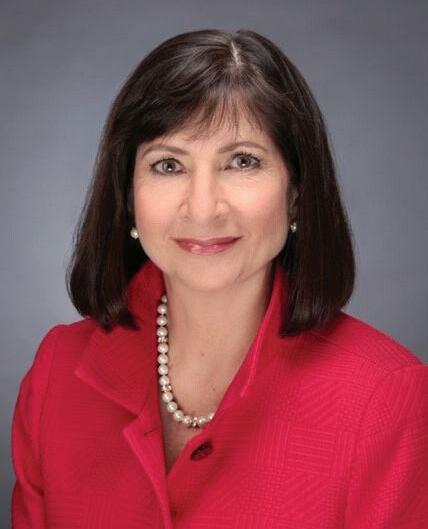
kppaskvan10@gmail com | ICPAS member since 1984
Board committee work these days is anything but boring While many boards typically meet four times a year, in a crisis, boards and their respective committees must meet and communicate far more frequently And while financial matters in prior meetings may have focused mainly on company income statements, crisis management demands a deep focus on the balance sheet Is there enough cash flow to meet short-term obligations? Are there debt obligations that can be renegotiated or refinanced?
Finances aside, corporate leaders should be looking for ways to act, not just react, and boards should encourage executive management to actively seek out opportunities During turbulent market periods and economic recessions, there are always opportunities for new talent, new partnerships, and new consolidations While we are all trying to imagine a new normal, we also are given a rare chance to reimagine operations and technology solutions through creative problem-solving
During a crisis, getting a multitude of perspectives on strategic decisions is more important than ever Often, critical decisions occurring in boardrooms are vetted initially in a committee structure Risk committee agenda items permeate throughout the entire organization, and frequent disclosures of regulatory and other material risks are required and discussed in management discussion and analysis (MD&A) reporting The overlap that exists between the risk and the audit committees has increased as risk disclosures continue to expand, meaning risk matters often end up on multiple agendas The regular discussion of risk in each committee and among the broader board of directors is critical to the understanding of a business’ growth strategy, scenario analysis, and mitigation plan As businesses retool, recover, and rebuild in a crisis, they need a playbook of potential paths forward This is easier with the comprehensive and collaborative ownership of risk matters throughout the organization all the way up to board oversight
The AICPA and N C State University’s Poole College of Management collaborate each year in publishing an annual look at the state of enterprise risk management In the 2020 findings published in April, they observed:
• Over 80 percent of large organizations and public companies have management-level risk committees
• Most respondents (59 percent) believe the volume and complexity of risks is increasing extensively over time
It’s not a game; how corporate boards analyze and respond to risk is critical in a crisis.Leadership Fellow, National Association of Corporate Directors
• But only 24 percent of the organizations’ board of directors substantively discuss top risk exposures in a formal manner when they discuss the organization’s strategic plan
Of the 563 survey respondents, which included public, private, and not-for-profit entities, only about 54 percent had assigned risk oversight to a separate committee Lacking a separate risk committee, risk matters are generally assigned to the audit committee for review, with the HR and compensation committee dealing with talent risk and second-tier succession matters

By necessity, crisis management board work often focuses on short-term emergency decision-making It should also highlight risk measures and contingency planning initiatives that have been successful, as well as evaluate and strengthen those that need improvement As each board committee meets on critical matters, here are some of the most prominent risk areas to be discussed:
The pandemic has highlighted the real risk of not having a distributed supply chain with multiple third-party relationships Companies and their boards should be evaluating overseas suppliers of raw materials, manufacturing plants, distribution arrangements, and everything in between
Has management been communicating the dangers of cyber threats? Hacking and phishing are rising risks as cyber criminals try to take advantage of increasingly distributed workforces and many newly remote workers potentially sharing devices with family members which may leave personal and business data vulnerable
You’ve no doubt read about the retail bankruptcies filed for J Crew, J C Penney, and Neiman Marcus There will be many more illiquid organizations forced to consolidate locations or stop doing business altogether despite government response programs to stem the impact of COVID-19 Bankruptcy doesn’t work in all cases, and it can leave employees without pensions unless you carefully construct the filing Scenario planning is critical in these uncertain times Boards should expect, or request if necessary, frequent updates on plans to evaluate and strengthen access to capital and refinance debt given current low interest rates Boards should also evaluate any share buyback programs in place and, if necessary, terminate them
Many industry-wide company valuations have declined and it’s unclear how long they may be depressed Evaluating revenue stream scenarios is necessary, along with frequent reviewing of client/customer touchpoints Companies will be reporting balance sheet impairments or new reserve requirements Many companies should also renegotiate and rethink leases as they reconstruct office layouts that are conducive to social distancing and account for more remote workers Boards should be made aware that regulatory agencies are calling for specific disclosures about the effects coronavirus is having on companies
The Department of Labor reported the U S unemployment rate hit 19 5 percent in April when adjusted for errors Besides being the highest rate since the Great Depression, more than 20 5 million jobs vanished in the worst monthly loss on record Whether these job losses are temporary or permanent is still to be seen Still,
companies must devise plans to reskill and upskill employees While this has been on the radar for some time, the move to virtual work environments highlights the need for workstreams dedicated to enhanced training and retooling
HR and compensation committees should be evaluating incentive compensation structures, including considering executive pay cuts and retention packages for key succession personnel At the same time, the marketplace may be offering an opportunity to go after previously unavailable talent
Bain & Company’s 2020 Global Private Equity Report lists 2019 cash-ready reserves at $2 5 trillion The challenge in getting this money off the sidelines and invested in new deals is that due diligence will be tougher than normal if all activity is done virtually and digitally After all, meeting company leaders and evaluating culture and values has generally been done through in-person conversations In addition, deal structures may change depending on the target industry and any reliance on overseas supply chains I suspect only companies with liquidity reserves and already targeted M&A opportunities may be in the marketplace in the nearterm However, with company valuations depressed, boards may want to explore previously unavailable acquisition targets
Major economic events require teams to come together A board that is engaged and informed can strengthen its committee structure and its ability to do the planning and evaluative work necessary to mitigate risks Ensuring your board and its committees are evaluating and responding to risks as quickly and with as much information as possible puts your organization in the best position to be responsive and transformative
Par ticipating is as easy as 1-2-3: Choose a community organization or charity to help Register your volunteer activity plans at www.icpas.org/CPADayofSer vice.
Receive a free CPA Day of Ser vice t-shir t (while supplies last, free to Illinois CPA Society members)
Unlike previous years, you can give a day, ANY day! Pick a date t his fall t hat works best for you and t he organization you want to help.
While the pandemic may restr ict the size of your volunteer g roups, the call to suppor t those in need has never been stronger
Questions? Please cont act Derrick Lilly at lillyd@icpas.org or 800.993.0407, x7614.
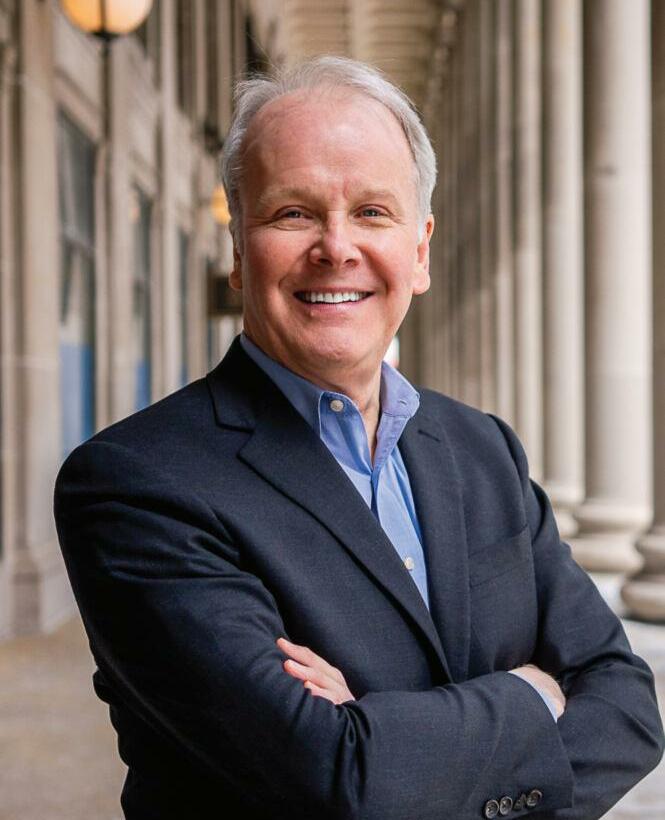
The remote work experience can work for financial advisors and their firms, but it requires some fine-tuning first.
As an Illinoisan, you may be familiar with a quote attributed to a certain Chicago mayor: “You never want a serious crisis to go to waste ” But my favorite part is Rahm Emanuel’s next sentence: “It’s an opportunity to do things that you think you could not do before ” How appropriate for 2020! All of us have been forced to conduct business in ways that we never imagined because of the coronavirus crisis
Perhaps the biggest change to our day-to-day lives is the shift to working from home Here are my observations as I adapt my financial planning practice to a new normal
As an employer running a financial advisory business, I’ve found working from home to be dissatisfying At first, the idea of cutting out my commute, holding videoconferences with clients, and working remotely with my staff was quite attractive And I can honestly say that the first few weeks of working from home were fantastic
However, as time goes on, I realize that I miss the personal connections with those normally around me A videoconference doesn’t permit me to see a client’s body language and calibrate my advice accordingly nearly as well as when I’m sitting across my desk from him or her There’s also almost no opportunity to take a break from the work at hand to chat with a colleague or fellow business owner in my suite when working from home And it’s now much more difficult for me to sense if a staff member needs assistance I must admit that it took losing those in-person aspects of my work to realize how important they are to me
It’s not just us firm owners and employers feeling a disconnect there is at least some evidence that working from home is more stressful for employees as well Writing for Bloomberg, Michelle F Davis and Jeff Green noted more and more employees are reporting that their bosses equate working from home with 24/7 availability And we thought that cellphones and wi-fi had already blurred the distinction between on-the-job time and off-the-job time!
Surprisingly, a growing number of employees feel they have even less downtime than before the stay-at-home orders were issued I spoke with Cameo Roberson, founder and CEO of Atlas Park Consulting, an outsourced virtual COO platform for financial advisors, who confirmed the sentiment She explained, “Bosses have little control over employees now and no way to track productivity when working from home The inability to walk to a
staff member’s desk or catch up in the hallway to get an update has created a level of anxiety for employers In addition, working from home is a new reality for many, and employees are playing catch-up to establish both good working-from-home environments and habits ” Roberson suggests using a CRM platform that tracks tasks and responsibilities to help manage this anxiety and eliminate possible workflow inefficiencies She also says something as simple as weekly staff meetings to touch base and get updates is a great way to connect
In their attempts to ensure productivity and keep up communication, employers often fail to distinguish between business and after-hours I suggest employers and managers establish boundaries with their employees and direct reports Not every employee will feel the same way, but straightforward communication will go a long way in reassuring your team that even if you do email them at 11 in the evening, you don’t expect an immediate response
The needs of the most important constituency, our clients, may be easiest to meet among the three groups when working from home How much easier is it for clients to accept phone calls or invitations to virtual meetings than driving to their advisors’ offices? However, this assumes that clients enjoy a terrific virtual experience Roberson maintains that the most important goal of working from home, as it is when working from the office, is providing an excellent and seamless client experience
Technology is a big part of this, but it’s not the only part For example, like face-to-face meetings, virtual meetings must be wellplanned and organized In general, people are still getting accustomed to communicating via video, whether it is for work, personal business like meeting with their advisor or for social connection with family and friends Pauses in conversation make some people uncomfortable, so Roberson advises limiting videoconferences with clients to 60 minutes or less and having a clear agenda to keep communications meaningful
In addition, Roberson recommends that CPAs and financial advisors using video chat with their clients do a little stage-setting Conducting a videoconference from a home office is ideal, but no matter where it takes place, remove as much background clutter as possible and creating a pleasant, organized backdrop Also, pay attention to the positioning of the camera and the lighting; you want your clients to have as clear a view of you as possible Continue to watch for social cues like crossed arms or lack of eye contact to see if your client is comfortable Lead with empathy during your call to show both care and concern This will put your clients at ease
Video communications apps and software, like Zoom, are powerful tools for creating a meaningful virtual client experience and replicating office connections between employees and employers However, videoconferencing isn’t always the safest way to share clients’ private personal and financial information John Sileo, president and CEO of the Sileo Group, a technology think tank, recommends ensuring your connection is encrypted, creating a unique meeting ID and password for each interaction, and not sharing files via these services Protecting your clients’ information should be a priority, so be aware that software licensors are recording the content of your meetings and generally reserve the rights to collect and share that data Zoom offers the ability to record the content of your meetings, but Robertson advises obtaining consent from anyone you speak with prior to recording
If they do consent, consider only recording the session to your local computer versus storing it with Zoom In other words, be mindful to balance the benefits of easily sharing information against the costs of making that information available to third parties
Sileo also advises CPAs and financial advisors to protect against the vulnerabilities of which we are already aware Working from home may mean relaxing in pajama bottoms, but it doesn’t mean taking it easy on cybersecurity Regularly update your computer and smartphone operating systems Establish firewalls and VPNs, especially in employee home computer networks that are often at greatest risk of being hacked Finally, consider outsourcing or hiring a trusted information technology professional to establish top quality security features across your firm’s computer systems and other technology tools The cost of a technological breakdown and loss of firm or client data is much higher than the expense of preventing the loss in the first place
The popular opinion seems to be that once the coronavirus pandemic subsides, working-from-home will remain prevalent in some way, shape, or form That will come with both benefits and costs to us and our clients As trusted advisors, we must ensure that we do the best we can for all parties involved, whether that means not calling our employees after 5 p m or doubling up our cybersecurity measures to protect clients Let’s not waste this perfectly good crisis when we can use it to strategically improve our remote work experience and add value to the insights our clients count on us for in times of crisis and beyond
The CPA Endowment Fund of Illinois, the Illinois CPA Society’s char itable par tner, annually awards $2 15,000 in scholar ships and training programs to more t han 200 diver se and deser ving accounting students across t he st ate.



Ever y year, we have more qualif ied candidates than awards to give. Your gif t will help us close that gap and provide additional oppor tunities to future CPAs Donate
www.icpas.or

March 2020 will always be remembered as the month when the coronavirus pandemic began to escalate in the United States Professional and college sports paused, many businesses closed their doors, and organizations sent millions of workers home to work remotely A Gartner survey showed that roughly half of all organizations had more than 80 percent of their employees working from home during the peak of the pandemic
While the new realities of the pandemic are still unfolding, one is certain: an increase in remote work is here to stay Nearly half of CFOs surveyed by PwC plan to make remote work a permanent option for suitable roles in their organizations And most employees want more opportunities to work remotely An IBM survey of 25,000 adults found that 54 percent of them would prefer to work remotely most of the time
To be effective in this emerging remote work environment, leaders must add these five tools to their leadership belt:
In most areas across the country, the economy will reopen gradually, meaning many workers will continue to face dynamics that made the shift to remote work incredibly challenging Some are sharing the work-from-home environment with a family member or roommate who is also working from home Working parents may have limited options for their kids this summer many childcare providers, summer camp programs, and recreational activities have been cut back or are closed altogether
Leaders must show empathy toward workers who face these challenges Daniel Goleman, a thought leader on emotional intelligence, refers to empathy as the ability to understand the emotional makeup of others and make intelligent decisions with those emotions in mind That compels leaders to focus on their employees’ emotional wellbeing and go beyond merely asking, “How are you?” I suggest practicing active listening and observation to read between the lines as you talk with team members about their situations and, when appropriate, invite a deeper discussion of their needs
Demonstrating empathy toward your employees will make you aware of the need for an individualized approach in setting expectations with them Notice my choice of the word “with” rather than the word “of ” establishing mutual expectations requires a collaborative
Effectively leading remote teams is now and forever will be an essential leadership competency
effort rather than issuing across-the-board mandates The workfrom-home dynamics mentioned above will vary dramatically from one employee to the next
Work style and personality differences also affect how each team member responds to working remotely versus in a traditional setting Some people crave the more structured environment of an office, while others welcome the flexibility and freedom of working away from it Also, the jobs performed by your team members may differ significantly in their suitability for remote work For some jobs, there’s little difference in how they are performed remotely For others, there are significant barriers Acknowledging and navigating these differences will build trust with your team members
As you collaborate with workers to establish mutual expectations, consider these three critical factors First, how much flexibility they have in setting work hours and whether they need to be available during certain core hours Second, expectations about their accessibility for meetings, phone calls, emails, and other communication, internally and externally Third, deadlines for projects or important milestones and whether they are recurring or one-time events
Performance and productivity coaching was gaining traction as a leadership tool before the pandemic, especially among earlycareer workers It is even more important now as leaders are forced to rely less on fixed performance demands and instead must collaborate with workers on mutual expectations, as discussed above Coaching is effective in helping workers not only understand what work needs to be done but how to get it done productively especially since staying productive can be challenging for employees not accustomed to working remotely
Research during the height of the pandemic reveals a wide disparity in workers’ assessment of their productivity while working remotely In a YouGov study sponsored by USA Today and LinkedIn, 54 percent of respondents indicated that working from home had a positive impact on productivity In comparison, 25 percent said it hurt their productivity
Through coaching, leaders can help team members identify barriers to productivity and explore ways to overcome them One CFO coached a struggling employee to reorganize her desk at home to replicate her set-up at the office, complete with three monitors (which the company purchased for her) Another finance leader used regular check-in calls to identify and mitigate common distractions that were interfering with her team’s ability to focus well enough to complete essential tasks
Increasing communication is essential anytime there is significant change or crisis A shift to remote work makes this even more true The need for more communication starts at the top, as leaders convey the organization’s vision and top priorities during the current environment In my role as an adjunct faculty member for North Park University, I was reminded by the president throughout the spring of two crucial priorities: the health and safety of the community and the successful completion of the academic term
The best leaders conduct regular one-on-one check-in meetings with team members When those team members are remote, these check-ins should be more frequent They may be shorter in duration, but the increased frequency helps to substitute for subtle communications that we take for granted in the office, like the
informal conversations at the coffee pot, along the cubicle wall, or in the hallway provide an opportunity for quick updates, questions, and clarifications Those in-person interactions allow leaders to read body language and nonverbal cues to gain a sense of how their team members are doing that would be lost in a remote environment Regular video check-ins are one way to replicate inperson interactions in a virtual environment
One executive offers a special Zoom meeting room during specific dates and times for this purpose Another schedules virtual office hours for drop-in conversations with team members Do not be an absentee boss, even with top performers who work well on their own

According to the YouGov survey cited above, more than half of employees feel lonely because of remote work, with about 20 percent saying they are lonely all or most of the time You can combat the isolation factor by hosting virtual team gatherings Add a social element to your team building with nonwork events like a virtual happy hour or trivia contest When done well, these gatherings build trust and positive relationships within the team Put these five leadership tools to work and the result should be a healthier, more collaborative, and more productive team when you return to the new normal whenever and wherever that may be

Business ethics are crucial during a crisis We have already seen an increase in fraud as a result of COVID-19: In April 2020, the FBI reported a four-fold increase in reported cybercrimes, and the Federal Trade Commission has reported that Americans have already lost more than $13 million in COVID-19-related scams Companies are scaling back their workforces, which impacts segregation of duties Additionally, senior leadership teams are focused more on operations and modifying forward-looking strategies than they are on compliance and review While it is a time to review what processes can be modified, ensure you and your organization are upholding ethical standards and keeping controls intact to prevent and detect fraud
Turbulent times lead to a rise in fraudulent activity After the 2008 financial crisis, the SEC pursued lawsuits and charges against more than 200 organizations and individuals, which cost approximately $3 76 billion in disgorgement, penalties, and other monetary relief In the wake of Hurricanes Katrina and Rita, the Government Accountability Office estimates that between $600 million and $1 4 billion of funds were distributed by FEMA because of fraudulent requests
In the current pandemic, government relief programs like the Payroll Protection Program and the Economic Injury Disaster Loan program will draw fraudulent requests If you apply for these funds for your organization or your clients, carefully document your rationale for determining need and how the funds will be used If you have questions, reach out to the Small Business Association for guidance
As you continue to work to prevent fraud in your organization, you should understand how fraud transpires David T Wolfe and Dana R Hermanson explained the framework for fraud in their The CPA Journal article, “The Fraud Diamond: Considering the Four Elements of Fraud ” Wolfe and Hermanson built upon Donald Cressey’s fraud triangle by adding a fourth key factor (capability) contributing to how a person commits fraud Let’s examine each element of the fraud diamond in the light of the COVID-19 crisis
• Incentive/Pressure: While some relief exists, businesses and individuals are facing real economic challenges and struggling worldwide This environment puts pressure on people to consider acting unethically According to the ACFE’s 2020 Report to the Nations, 85 percent of all fraudsters displayed at least one behavioral red flag, and 26 percent were experiencing financial difficulties
• Rationalization: When people are struggling, they find it easier to justify unethical behavior, often along such lines as, “I am not hurting anyone, ” or, “I need to provide for my family ”
• Opportunity: Many organizations are employing remote workforces, which changes controls, limits oversight, and may reduce the time we discuss decisions with our colleagues
• Capability: According to the same ACFE report, a fraud perpetrator’s higher education level corresponds to higher capabilities to commit fraud Higher education levels also correlate with higher levels of management, which puts them in more influential positions
A crisis puts crucial business ethics at risk. Here is how to guard against fraud in times of turmoil.
to perpetuate frauds Additionally, in an economic crisis, some may argue that these higher-level executives have more to lose in terms of assets and lifestyle 42 percent of fraudsters reviewed in the ACFE report were living beyond their means


You should already frequently review prevention and detection measures in your organization, and now it is imperative to assess their effectiveness Organizations are already suffering due to the economic pressures from COVID-19, and fraud can compound their losses
A lack of internal controls accounts for approximately one-third of all frauds according to the ACFE The presence of controls reduces fraud losses and is associated with quicker detection Here is a list of prevention controls you should assess for your organization:
• Code of Conduct: Distribute a formal code to employees during onboarding and ask them to revisit and acknowledge it periodically You should regularly review it for accuracy and include situations that may be common to your organization to help employees understand the risks and their expected behaviors
• Management Review: Ensure at least two trusted people are involved in key decisions and have them document the rationale for decisions This control is especially important with more people working remotely
• Fraud Training: Teach your employees about common fraud schemes they may be subject to, like phishing, and other schemes that they could be more susceptible to in a crisis Encourage them to speak up when something does not look right, and ensure you have anti-retaliatory policies in place
Even if your organization has prevention controls in place, fraud may still occur, so design effective detection controls, too Detection controls work best with prevention controls in place The ACFE report noted that organizations with fraud awareness training are more likely to gather tips through formal reporting mechanisms than those without training Here is a list of detection controls you should implement:
• Whistleblower Hotline: Provide an anonymous way for employees to report suspicious behavior, either via phone or email Median losses from fraud are nearly double at organizations without hotlines
• Management Review: This control is for both prevention and detection Implement a process where management members review decisions where other management members were involved
• Independent Review: Ask another party to review your work; another party can be external audit, internal audit, or employees independent from a process The more people are looking at key processes (payroll, accounting, financial statement reporting, etc ), the more likely fraud will be discovered if it is happening
The pressure is on right now, and the environment is ripe for fraud
By understanding fraud and properly preparing for it, we can maintain a robust ethical framework for ourselves and our organizations
If you need support or have a question, please reach out to the AICPA Ethics Hotline: 1 888 777 7077 Additionally, if you are aware of or suspicious of an individual or organizational fraud, please consider contacting the National Center of Disaster Fraud Hotline: 1 866 720 5721 or visit justice gov/disastercomplaintform

CPAs who are willing to innovate with their clients now will find their new business multiplying exponentially as recovery begins.
At our most fundamental level, accountants are problem-solvers Historically, clients come to us with relatively familiar problems, like closing their books for the month, filing their tax returns, or completing their annual audit or review for the bank These tasks are essential, after all, but not particularly urgent Those of us most successful at business development are skilled at designing simple solutions for common problems; we have a playbook for most scenarios You know what we didn’t have? A playbook for a pandemic
Over the past several months, the problems our clients are facing have changed dramatically Their essential needs have become urgent needs and meeting those needs could be the difference between saving or shuttering their businesses
The challenge for us as their trusted and strategic business advisors is that their problems have gone from familiar to unfamiliar Great advisors spend their entire careers developing their toolkits for problems, but there’s usually more time to mull over the best solutions to unfamiliar challenges Today, we ’ re experiencing a double whammy: unfamiliar problems and urgent needs We’ve become financial firefighters first responders on the economic frontlines
Who will be positioned to succeed in this new reality? One strategy the most conservative CPAs are using is to wait it out and hope things return to normal soon But is that really a strategy? For most of us, that’s not the best option In times of crisis, building your business pipeline becomes more important than ever So, it’s time for a new game plan Those of us who can adapt, be nimble, and are willing to try new things will be the most successful in these uncertain times and when a return to normal takes hold
There are three strategies you can use to refill your pipeline in difficult and fast-changing times First, become better at asking great questions and listening to the responses Our questioning and listening skills tend to atrophy when we think we know what the problem is, but they’re crucial to finding new solutions Second, become better at answering those questions and solving those problems Third, become better at building and implementing creative solutions
This skill set is hard to master Often, we fall into the habit of asking the same questions that lead to the same answers meeting after meeting, year after year Let’s mix up the questions and see what happens Consider adding the following questions to your repertoire:
• What are the top three most immediate issues facing your business?
• Have you thought about your solutions to these problems?
• What are your peers doing?
• How have you transformed your business or business model?
• How has this affected your short-term, mid-term, and long-term goals for the business?
Only by fully understanding what your clients see as challenges can you find innovative solutions And if nothing else, these questions and others like them convey empathy and mark you as a thoughtful and strategic advisor Clients must trust that you are invested in helping them grow their businesses and not just your own
Let’s say that you ask a client with a catering company how they plan to transform their business model to adapt to the changing demands of COVID-era customers Given current restrictions on large group gatherings, there’s no need for continental breakfasts or open bars, and this client hasn’t been able to figure out how to adapt Being a strategic advisor in this situation doesn’t mean you need to know how to run a catering business you can tap other resources, like your other food service client who has made some interesting changes Making a simple introduction can help In fact, hosting a video conference with all of your food service clients and prospects so they can share ideas together, while you provide some financial and accounting tips for businesses in survival mode, is a timely and valuable solution for them and a valuable business development tool for you
Virtually every business is finding new ways to serve customers or closing their doors We can provide a valuable service to potential clients by helping them brainstorm better answers to their urgent questions
If you ’ ve noticed a plethora of product and service innovations over the past several months, it’s because innovations are born out of new problems Some call it “creative disruption ” Take the explosion of curb-side pick-up at your favorite restaurants With customers unable to dine inside, and some not even wanting to step inside for carry-out, many restaurants implemented a new process for patrons to phone in their orders, pay electronically, pull up outside, and have their orders placed directly in the trunks of their vehicles!
Or consider the CPA firm that created a “re-opening your business playbook” with accompanying tips and advisory services It spoke directly to the countless businesses that were deemed nonessential and forced to shutter their doors and are now facing a cautious, phased reopening if they survived the shutdown

And my firm, for example, launched a nationwide virtual roundtable for CPA partners that reached capacity in two weeks When you successfully identify a problem, find an innovative solution, and implement it effectively, you’ll find there’s a real thirst for exactly what we ’ re putting out into the world
As a CPA, you are a problem-solver and, man, do your clients have problems You can’t just rely on past solutions in this time where urgency and uncertainty reign The challenges you and your clients face are not insurmountable By confronting challenges, fine-tuning your questions, elevating your listening skills, creating and implementing new solutions, and then sharing those solutions, you ’ re adding a host of new tools to your toolkit and ensuring your new business pipeline can flourish now and in the future

For CPAs wanting to provide input into Illinois tax rules, start by understanding how they are adopted.
When we try to decode an Illinois income, sales, or excise tax issue, we review the law But a critical step in gaining a complete understanding of a tax issue and why it exists is reviewing the administrative rules promulgated by the Illinois Department of Revenue (IDOR)
The Illinois General Assembly routinely enacts statutes that set forth the broad parameters of a tax, exemption, or credit, and grants IDOR authority to provide guidance on the tax issues through rulemaking You won’t necessarily be able to stop there, though, because depending on the issue, the Illinois Department of Commerce and Economic Opportunity (IDCEO) also has rules on the various tax credits and incentives programs that it administers Further, local taxing authorities such as the City of Chicago and Cook County have their own versions of “rules” for taxes that they administer and collect However, units of local government are not subject to the Illinois Administrative Procedure Act (IAPA), and decoding the rule-like policies and procedures of local governmental units is a topic for another column Practitioners need to understand the procedures for rulemaking mandated by the IAPA Important parts of this knowledge are the ways in which practitioners and members of the public, and their representatives, have input into the rulemaking process and can influence the substance of rules adopted by state agencies
Just as the public can lobby the Illinois General Assembly to shape law, the public can lobby the agencies that promulgate tax rules and comment on rulemaking proposals IDOR also provides additional informal access to practitioners and other taxpayer representatives outside of the formal requirements of the IAPA in the form of advance access to draft versions of rules to members of the Director’s Advisory Group
The IAPA defines the term “rule” as “each agency statement of general applicability that implements, applies, interprets, or prescribes law or policy ” IDOR rulemaking is subject to oversight, both by members of the public and a bipartisan, bicameral committee of the Illinois General Assembly, the Joint Committee on Administrative Rules (JCAR)
The IAPA requires all proposed and adopted rules to be published in the Illinois Register, which is published in print and online each Friday morning by the Illinois secretary of state The secretary of state is also charged with maintaining the official database of administrative rules A version of this database is maintained online by the Illinois General Assembly, and the IDOR also maintains copies of the tax rules that it administers and enforces on its website (although I caution in my experience the IDOR site is not updated as quickly)
Here are the three ways in which an agency, such as the IDOR, can adopt a rule:
• Emergency Rulemaking: Emergency rules are adopted and effective immediately to address a situation that reasonably constitutes a threat to the public interest, safety, or welfare Emergency rules are effective for not longer than 150 days
• Peremptory Rulemaking: Peremptory rules are required as a result of federal law, rules, and regulations, a court order, or a collective bargaining agreement that precludes compliance with the general rulemaking requirements and precludes the exercise of discretion by the agency as to the content of the rule Peremptory rules are effective immediately upon filing with the secretary of state
• General Rulemaking: The general, or normal, rulemaking process commences with the initial publication of a proposed rulemaking in the Illinois Register, which begins the first notice and comment period that lasts for no less than 45 days from the date of publication The IDOR website maintains an up-to-date list of all proposed rulemakings and their status
During the first notice period, members of the public may submit comments on proposed rules to the agency that proposed the rulemaking Members of the public may also require a public hearing on the proposed rules If the hearing request is made within 14 days of the initial publication of the rulemaking by 25 members of the public, an association with a minimum of 100 members, or by an affected unit of local government, a hearing must be held
At the end of the first notice period, an agency may commence the JCAR review process by filing its “second notice” document with the JCAR The second notice filing must include all public comments received during the first notice period and the agency ’ s evaluation of those comments The second notice filing must detail any changes made to the proposed rulemaking during the first notice period and the agency ’ s rationale for those changes
Generally, the second notice filing is seen only by the JCAR and its staff unless requested by a member of the public I generally request copies of second notice filings for rulemakings I commented on In the interest of transparency, the IDOR has begun publishing copies of second filings on its website
The second notice period may last for a maximum of 45 days, unless extended by agreement of the agency and the JCAR During the second notice period, the JCAR staff review the rulemaking to determine whether the agency complied with the IAPA’s procedural requirements, whether there is statutory authority for the rulemaking, and whether the agency has satisfactorily addressed issues raised by the public during the first notice period
Members of the public also can file comments and concerns with the JCAR’s committee members and staff Because time is short for the second notice review, I often file copies of my comments with the JCAR staff when I file comments with the IDOR
After the review of the agency ’ s second notice filing, the JCAR staff submits its recommendations to the committee for consideration at its monthly meeting The committee can vote to object to the rulemaking on various grounds A typical objection is that the agency exceeded its statutory authority with respect to all or a portion of the rulemaking, or that the agency did not properly follow the IAPA’s procedural requirements The committee also can object that the agency has not properly considered the impact of the
rulemaking on small businesses The agency is required to respond to these objections before adopting the rule and can agree to modify the rule or adopt the rule despite the objection
In certain situations if the rulemaking constitutes a serious threat to the public interest, safety, or welfare the JCAR has authority to block the adoption of a rule by a three-fifths majority vote In recent years, the JCAR has acted with some regularity to block the adoption of rules If the JCAR has not voted to block the rulemaking, the JCAR review is concluded, and the agency is free to adopt the rule The agency then submits the adopted rule to the secretary of state for publication in the Illinois Register along with a copy of the JCAR certification of no objection or the agency ’ s response to any advisory objections The IAPA requires the rulemaking process from initial publication to adoption to be completed within one year
Bottom line: Now that the process is decoded, if you see a proposed rule that you don’t like, know that you have the opportunity to provide input and influence its modification before it becomes effective

The SEC’s Office of the Chief Accountant has highlighted five areas finance must carefully consider in the wake of COVID-19.
When the World Health Organization declared the COVID-19 outbreak a pandemic on March 11, 2020, it recommended global containment and mitigation measures It didn’t take long for companies across the world to feel the impacts, from supply chain disruptions to workforce safety While we all hope to recover from the pandemic and its effects as quickly as possible, some of the changes we made this spring and early summer will carry on There are key items that will need to undergo constant evaluation and require significant judgment in the coming months as financial statements are prepared and the situation evolves
On April 3, 2020, SEC Chief Accountant Sagar Teotia wrote in “Statement on the Importance of High-Quality Financial Reporting in Light of the Significant Impacts of COVID-19” that while the Office of the Chief Accountant appreciates the challenges COVID-19 has created in complying with financial reporting obligations, it expects financial reporting to continue to uphold a high standard and “provide investors with high-quality financial information ” Teotia highlighted several areas where companies may have to make significant financial reporting judgments and estimates related to the impact of COVID-19 in the financial statements, ranging from fair value assessments to hedging
As we all struggle with the constantly shifting challenges created by the pandemic, here are five financial reporting areas that could be impacted by the changed business environment and deserve our careful consideration
Companies are required to assess whether there is any impairment of nonfinancial assets whenever there is an indicator that the carrying amount may not be recoverable For many firms, the sudden loss of business and changes in consumer behavior could constitute an indicator that the related assets should be tested for impairment For companies that have adopted ASC 842, this will include the right-of-use assets associated with operating leases
Determination of recoverability requires forecasts of expected future cash flows under various scenarios The scenarios should reflect the relative probabilities of different future economic conditions over the remaining useful life of the asset At this time, experts differ as to the timing and extent of economic recovery and whether some of the changes in employment and consumer behavior are temporary or permanent It is reasonable to expect considerable variability in the timing and amount of estimated future cash flows, and that will complicate the process Additional disclosure may be required to help the users of the financial statements understand the assumptions and related risks
The same factors that affect recoverability also affect many fair value measurements These will need to be taken into consideration if an asset is determined to be impaired and whenever a Level 2 or Level 3 valuation technique is used to measure a nonfinancial asset
Uncertainty about future economic conditions will also affect measurement of financial assets Whether using the legacy otherthan-temporary impairment (OTTI) model or the newer current expected credit losses (CECL) methodology, multiple assumptions will be necessary about current conditions and reasonably supportable forecasts of future conditions (The Coronavirus Aid, Relief, and Economic Security (CARES) Act contains provisions that defer implementation of CECL, but only for certain insured depository institutions )
When using models for valuation purposes, it will be more difficult than usual to estimate future interest rates, inflation, overall economic growth, and the prospects of individual issuers of debt and equity securities, which have all been affected by the COVID-19 outbreak, government and regulator reactions, and likely changes in future behavior In addition to making assessments in an environment of unprecedented uncertainty, reporting entities will need to con the sensitivity of the results to changes in those assumptions, a as any interactions between those assumptions

At the extreme, some companies will need to evaluate their ab continue as a going concern Specifically, when preparing fina statements for each annual and interim reporting pe management will need to evaluate whether there are condition events, considered in the aggregate, that raise substantial d about an entity’s ability to continue as a going concern within year after the date that the financial statements are issued W evaluating an entity’s ability to meet its obligations, manage should consider information about conditions and events kno reasonably knowable at the date of the financial statement already noted, any forecast, even over the short term, is very d under conditions of unprecedented uncertainty Managemen need to constantly evaluate the financial situation and outlook a as any plans for addressing expected and possible outcomes be prepared to disclose the principal conditions, managem evaluation, and any plans that may or may not alleviate the con about the entity’s ability to continue operations
Due to the impacts of COVID-19, many companies are renegot contracts, including contracts with customers, leases, and deb covenant arrangements Where there are significant assump being made in relation to the modification of contracts, a com should document its assessment and consider disclosure if ma to the financial statements Significant judgment in the treatme the new or modified terms should be considered for disclosur instance, estimated revenue for contracts with discounts base estimated annual sales should be reevaluated to determine the impact of revised sales forecasts Debt renegotiations will need to be evaluated to determine whether the changes constitute a modification or extinguishment of debt Rent concessions will have to be assessed by both the lessee and the lessor to determine whether to account for the concession as a modification of the contract or variable rent FASB and IASB have issued a Q&A and temporary guidelines respectively to help in making that decision Changes in forecasted transactions can also affect the accounting for cash flow hedges, and FASB issued a second Q&A that discusses those impacts
The federal, state, and local governments have introduced legislation and stimulus packages to help companies weather the storm, such as the CARES Act These measures have taken many forms and were passed into law rapidly, leaving certain details relating to their accounting and reporting treatment a bit vague Since so many of the eligibility and reporting requirements have been a moving target, it is important to use the latest information in your financial statements
As COVID-19 and other economic factors create turmoil, it’s our job to create clarity By continuing to uphold the same high standard of accuracy and transparency in financial reporting, and providing our strategic insight, we can help our organizations turn the storm into a passing shower
This column was co-authored by John Hepp, Ph D , clinical assistant professor of accountancy in the University of Illinois’ Geis School of Business
10.23.20
Radisson Blu Chicago
Featuring: 2020 Women to Watch Award Recipients
Keynote Presentation by: Dara F. Castle, CPA Managing Par tner, RSM US LLP, Washington Metro Of fices Register
To evaluate how your firm managed the most dramatic business disruption in modern history, and where it should go from here, it’s time to ask some tough questions
I’m sick of the word “unprecedented ” Yes, what we ’ ve been going through since March is unprecedented, along with the other well-worn words used to describe it: challenging, uncertain, turbulent But honestly, I’m tired of them Aren’t we all? I long for normalcy, consistency, and routine, even though I know rapid, significant change for my CPA and advisory firm and the profession will continue But this is a perfect moment for one thing: analyzing your firm’s response to a new kind of crisis
I’m not asking if you expected the pandemic to hit close to home practically no one did But how did you handle the unexpected once it was thrust upon you and your firm? Ask yourself the following questions to judge how you performed in four key areas:
Despite our services being deemed essential, we still had to navigate the stay-at-home executive orders, maintain safe social distancing, and wear masks when serving clients
• How quickly were you able to modify your standard protocol?
• How many major changes did you need to make?
• Were you able to communicate changes to clients and staff clearly and quickly?
The quick transition to work-from-home arrangements for many businesses and professionals once again highlighted the importance of being a technologically savvy CPA

• Did you have a technology plan in place prior to the pandemic, and do you have one now?
• Did you have the necessary hardware, software, and connectivity tools in place for you and your team?
• What delays did you experience in shifting to a remote working arrangement, if you were able to implement one?
Even with permission to continue operations, conducting business was a challenge We faced disruptions at the office, at home, and with staff
• Were you able to respond quickly to quell staff health concerns or discomforts?
• How quickly were you able to process health rules and recommendations and respond accordingly? Were you able to keep your staff engaged and productive?
• If you executed layoffs or terminations, were these due to lack of work, a change in the skill sets needed, or management’s inability to appropriately adapt to upheaval?
We are in the people business, so strong relationships with clients, customers, and vendors, etc should come naturally But a crisis stresses these relationships
• Were you able to leverage strong relationships built over time with clients and vendors, or did this expose where relationships may have been lacking?
• Did those relationships support your firm, or drag it down?
• Did your communication with key stakeholders increase or decrease during this time?
For years, thought leaders in the CPA profession have stressed the importance of being future ready, adapting to technology, change, and the shifting requirements of leadership and diversity What we ’ ve experienced, and what we ’ re still experiencing now, is the ultimate test of our future readiness This crisis has exposed exactly how prepared (or not) we were as professionals and firm leaders Could we have anticipated that a health crisis that started on the other side of the globe would have ravaged our economy in the manner it has? I doubt it But that doesn’t mean we should have been caught unprepared, and it definitely doesn’t mean we should remain unprepared

To say we ’ re somehow out of the woods would be foolish, but as we ’ re still processing the changes and challenges in establishing stability within the uncertainty, now is the perfect time to plan for the next pandemic, shutdown, recession, disruption whatever comes next But it’s not by writing a manual or establishing policies and procedures, it’s by transforming the structure of your firm
Do you think the firms who were best able to handle the instant disruption were those who had the best disaster recovery plans or were lucky enough to be in the right niche or had the appropriate service mix? No way It was the firms that had already envisioned the future Here are some of the steps future ready firms took before the crisis:
• They had adopted the latest technologies
• They had paperless processes in place, including for collections, bill pay, and obtaining signatures
• They had eliminated as much on-premises hardware and software as possible (i e , migrated to the cloud)
• They had been offering work-from-home arrangements for years
• They had built a diverse team with the wide-ranging skill sets and perspectives critical to thriving through sudden change
• They had woven flexibility and innovation into the fabric of their culture
• They had developed a network of industry professionals and peer firms to brainstorm with and bounce ideas off
Put simply, they built their firms for reinvention They didn’t know what was about to hit them, but they were unfazed by most of the changes other firms were scrambling to navigate Sure, they were impacted: They may have lost clients whose businesses collapsed or had to let some team members go But they were miles ahead of most of their competitors, and they’re realizing significant benefits because of it
The firm of the future isn’t necessarily the one with the most tools or the fanciest technology (although it helps); it’s the one who survives and thrives through continually increasing rates of change This requires a different mindset You must get comfortable asking yourself, “What if ?” What if this vendor goes out of business tomorrow? What if our current accounts receivable balance goes completely unpaid? What if I’m not able to meet in-person with my clients or staff for the next six months? Get creative! The answers to these questions should help you plan and implement incremental changes that move you closer to becoming a future ready firm and, perhaps more importantly, develop the mindset and culture to keep you there
Curt Mastio, CPA
is the founder and managing director of Founder’s CPA
He is an Illinois CPA Society member and the winner of the Society’s 2020 Young Professional Leadership Award
Istarted my career, like so many of my fellow accounting majors, with a job at a Big Four accounting firm, following a well-worn path At the time I thought this was my only option, and I never took the time to evaluate what I really wanted from my career And it seems like a lot of other CPAs are in the same boat A 2018 AICPA study found that more than half of young job seekers say they are likely to start their own business at some point, but out of the hundreds of entrepreneurs and small business owners that I've worked with over the last several years, only two were CPAs If young professionals are more interested in entrepreneurship than ever, why are CPAs so underrepresented? It’s probably because they are doing what I did: following the path defined for them by industry norms
When I took the time to think about what I really wanted from my career, I quickly realized that a traditional firm or corporate environment wasn’t for me And so, at the ripe old age of 25, I quit my safe public accounting job and started Founder's CPA, a niche-focused firm that provides accounting, tax, and outsourced CFO services to entrepreneurs, startups, and small businesses To be clear, I am not advocating for anyone who is lacking fulfillment in their current career to quit their job There are countless people who go into entrepreneurship with skewed expectations and end up unhappier than they were before they made the shift Before taking the plunge, it’s important to understand that building and running a business is exhausting, stressful, and thankless in many ways But on the other side of this struggle, I’ve found the immeasurable satisfaction that comes with seeing a new business grow and flourish When I look back on my journey, here is the advice I wish I had known ahead of time:

1 The first step is the hardest Before you make a career change, do your research and make sure that you fully understand the risks involved Once you ’ ve decided that the reward outweighs the risk, jump in headfirst and don’t look back Being only partially committed to your dream almost guarantees you will give up at the first sign of trouble You find out a lot about yourself and what you ’ re capable of when your back is against the wall
2. Put yourself out there, and don’t be afraid to make mistakes. Instead, accept that you will make countless mistakes, focus on owning these mistakes and learning from them, and don’t let the fear of failure hold you back
3. Build a great support network. Entrepreneurship is lonely, and you’ll need people with whom you can share both the highs and lows Join local entrepreneurship groups, seek out mentors in your industry, and surround yourself with people who can relate to what you ’ re experiencing You’ll find their support and experience to be invaluable
4 Never stop learning Read books and blogs, listen to podcasts, and watch videos on topics that are relevant to your profession The internet is full of invaluable resources that previous generations never had access to, so capitalize on that opportunity You’ll be surprised how quickly you can become an expert in something if you ’ re willing to immerse yourself in it
5. Hire people who challenge you and address your blind spots. There is immeasurable value in building a team with a diverse array of backgrounds and perspectives Ultimately, you want to avoid creating an echo chamber that lacks substantive diversity of thought Instead, seek opportunities to work with people who collectively strengthen your abilities as a professional and realize that they may not all look, talk, or act like you
Finally, keep in mind that your career trajectory is ultimately your responsibility So, block out the noise of what others say you should be doing and take a hard look at what you want to be doing You might just find that your dream is to defy conventional norms and embark on the crazy journey of entrepreneurship
What CPAs should know about the challenge and fulfillment of entrepreneurship and how it can change their careers.












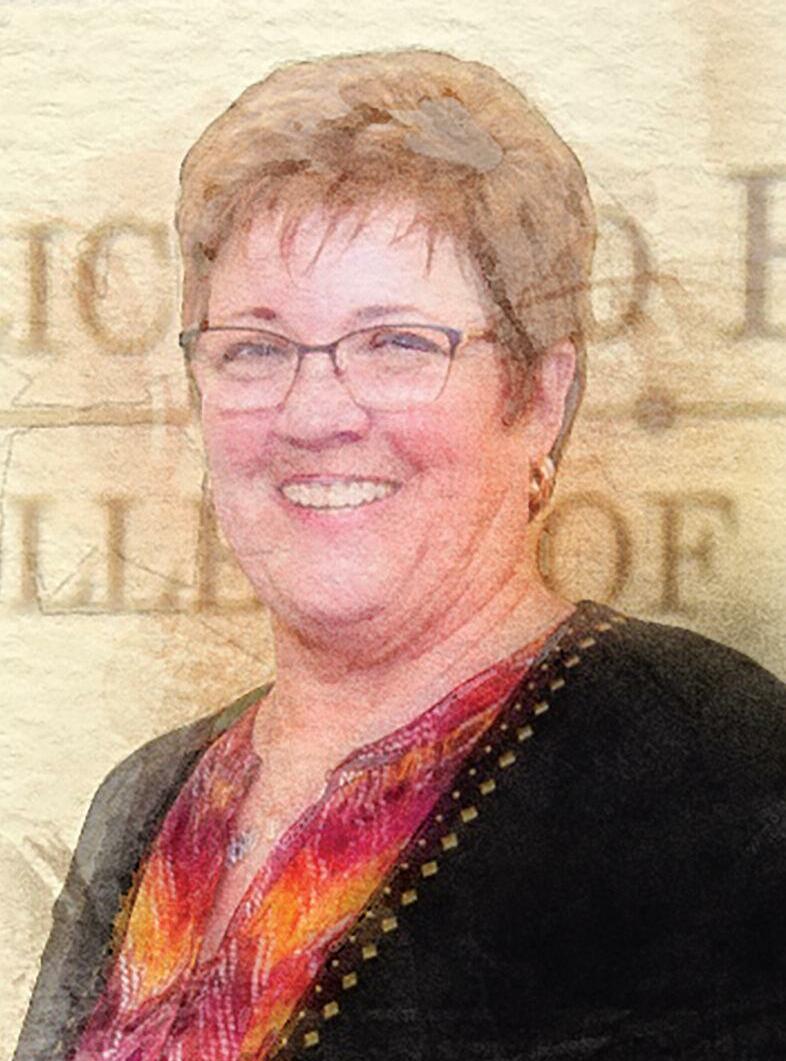
Interviewed by Derrick Lilly
“Honey, you ’ re good with numbers” is a seemingly commonplace compliment from a mother, but she really had her daughter’s number For more than four decades, Elizabeth (Beth) A Murphy, Ph D , MBA, CPA, has dedicated her life to making an impact on the accounting profession, resulting in professor emerita status at DePaul University and a list of institutions and organizations served, accolades achieved, and lives changed that could fill this whole issue Even in retirement she is still changing lives through volunteerism
Who would have thought that your mom’s nudge to “try the trusted profession of accounting” would lead to a career like yours?
Right!? What’s interesting is that she also attended DePaul University when they had a secretarial school I worked in public accounting for a few years after college, but my career path changed when El Strobel head of DePaul’s accounting department (and an incredible inspiration to students) when I was an undergraduate student and president of Beta Alpha Psi advised me to return to DePaul for my MBA I was recruited to continue my degree on a full-time basis as a graduate teaching assistant it was the first time TAs were used for the principles of accounting courses and that experience led me to seek a full-time teaching position
You’ve since dedicated your life to fostering future generations of accounting professionals. Why?
So many students, especially minority students, are first-generation college graduates I was also a first-generation college graduate, and I believed my role as a faculty member was to not only help students learn accounting but to also help them outside the classroom I viewed myself as an advocate for the students who didn’t recognize their talents There is nothing better than helping students who are hungry to learn and are genuinely appreciative of your support
You’ve inspired hundreds of students to pursue the CPA credential, which is now seeing declining numbers. What can turn this around?
Being a member of the AICPA Council and the AICPA’s FAR CPA Exam Content Subcommittee has kept me engaged in the activities to evolve the CPA credential and attract non-traditional students and professionals to it If the AICPA continues its forward-thinking approach and incorporates critical technology and analytics skills into the exam, I think the CPA credential will continue to be valued
But I would like to see more college-level accounting faculty promoting the CPA credential and being more knowledgeable about the CPA exam and the paths for students to achieve the 150 credit hours required to sit for it like taking more undergraduate courses to get the extra hours, especially technology courses that will unquestionably help them in their accounting careers
What have you learned from the lifelong relationships you formed with students and peers that can help today’s faculty and business leaders?
My experience has been that honesty and genuine concern are key and so is practicing what you preach My relationships are a direct result of the guidance and patience of my lifelong mentors who taught me to take the time to know my mentees
It is not always easy, but a good mentoring relationship evolves with time and feels natural and comfortable like every good relationship should
What else has driven your success, and where can we find some of our own?
I’ve been fortunate to have great parents, grandparents, brothers, and lifetime friends that support me outside my accounting career These caring people were role models for me and made success in my professional life possible
As many people know, I also have many great stories as a result of my volunteer experiences Others have always guided me toward activities where there was a need they believed I could help with Bob Peters, an ICPAS Outstanding Educator, mentored me throughout my career and invited me to succeed him as faculty advisor for DePaul’s Midwest Association of Hispanic Accountants Also, Debra Hopkins, a former chair of the Illinois CPA Society Board of Directors and former director of Northern Illinois University’s CPA Review, is one of many great professionals that I’ve come to know as an ICPAS volunteer that enhanced my ability to support students inside and outside the classroom My volunteerism with ICPAS has also led me to volunteer elsewhere These experiences are incredibly rewarding both professionally and personally

Sept. 23 Technology Trends Update Conference (Simulcast Only)
Sept 24 Financial Repor ting Symposium (Simulcast Only)
Oct 28 Construction Industr y Conference (Simulcast Only)
Nov 5 Cannabis Industr y Conference (Simulcast Only)
Nov 12 IRS/Tax Practitioner s Symposium (Simulcast Only)
Nov. 19 Not-for-Profit Conference (Simulcast Only)
Dec. 3 Accounting & Auditing Conference (Simulcast Only)
Dec. 8 Employee Benefits Conference (Simulcast Only)
Dec 9 Advanced Topics in Flow -Through Taxation Conference (Simulcast Only)
Jan 20 202 1 S tate & Local Tax Conference (In-person and Simulcast)
July 23 CCFL Networking Breakfast: RPA – Get S tar ted (Simulcast Only)
Aug. 14 YP Leader ship Conference: Future Ready (Simulcast Only)
Aug. 25-26 Vir tual SUMMIT20
Sept 29 Town Hall Forum (Springfield)
Sept 30 Town Hall Forum (East Peoria)
Sept 30 Town Hall Forum (Bloomington)
Oct 1 Town Hall Forum (Champaign)
Oct 23 Women's Leader ship Forum: The Power of You
Oct 30 Town Hall Forum (Rockford)
Dec. 2 Town Hall Forum (Collinsville)
Dec. 10 Town Hall Forum (Chicago)
Dec. 11 Town Hall Forum (Oak Brook Terrace)
Dec. 17 Town Hall Forum (Glenview)
July 20 Navigating Divorce - Tax and Litigation Issues (Simulcast Only)
July 2 1 Ethics and Professional Conduct: Updates and Practical Applications (Simulcast Only)
July 2 1 Real World Frauds Found in Governments (Simulcast Only)
July 22 Annual Update for Accountants and Auditors (Simulcast Only)
July 22-23 S taf f Training - Basic (Simulcast Only)
July 23 Fraud Update: Detecting and Preventing the Top Ten Fraud Schemes (Simulcast Only)
July 27 Construction Contractors Advanced Issues (Simulcast Only)
July 28 Hottest Tax Topics for 2020 (Simulcast Only)
July 29 Nexus Update: Latest Developments in S tate Income, Franchise, and Sales Taxes (Simulcast Only)
Aug. 4 Introduction to Forensic Accounting (Simulcast Only)
Aug 5-6 S taf f Training - Semi-Senior (Simulcast Only)
August 5 Expanding & S trengthening Your Emotional Intelligence: The Key to Better and More Power ful Relationships (In-person and Simulcast)
Aug. 6 Next-Gen Transitioning: Building a Sustainable & Transferable Firm Half-Day (Simulcast Only)
Aug. 10 IRS Disputes (Simulcast Only)
Aug 11-12 S taf f Training - Beginning In-Charge (Simulcast Only)
Aug 11 Taxation of Proper ty Transactions (Simulcast Only)
Aug. 11

Project Management Skills for Non Project Manager s (In-person and Simulcast)
For a full listing of all upcoming education programs visit www.icpas.org/education
Aug. 12 MS® Excel®: Formulas and Functions (In-person and Simulcast)

Aug. 13 Analytics & Big Data for Accountants (Simulcast Only)
Aug. 17 Customer Ser vice Skills & Excellence: The Competitive Advantage and Dif ferentiator (In-person and Simulcast)
Aug 31 Essential Leader ship Skills for Front Line Manager s and Super visor s (In-person and Simulcast)
Sept 10 Time Management & Per sonal Ef fectiveness Skills (In-person and Simulcast)
Sept 14 Influencing Without Authority: Achieving Results Regardless of Your Positional Power (In-person and Simulcast)
Sept. 16 MS Excel: Database Analysis & PivotTables Made Easy (In-person and Simulcast)
Sept 17 Applying the New Lease S tandards: Practice Issues, Real-life Cases and Implementation (In-person and Simulcast)
Sept. 18 Corporate Finance Refresher (In-person and Simulcast)
Sept. 2 1 Accounting for Financial Instruments: Applying the FASB's Three New Updates (Simulcast Only)
Sept. 2 1 Update on Recent AICPA S tandard Setting: S taying Current in A Changing Environment (Simulcast Only)
Sep 22 Ef fective Presentation Skills: Delivering Presentations With Power, Persuasion and Impact (In-person and Simulcast)
Sept 28 Real World Fraud Found in Governments and Not-for-Profits (In-person and Simulcast)
Sept. 29 Essential Leader ship Skills for Front Line Manager s and Super visor s (In-person and Simulcast)